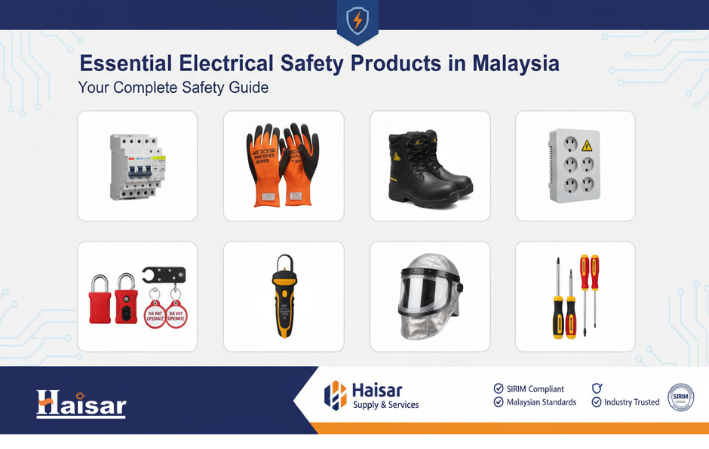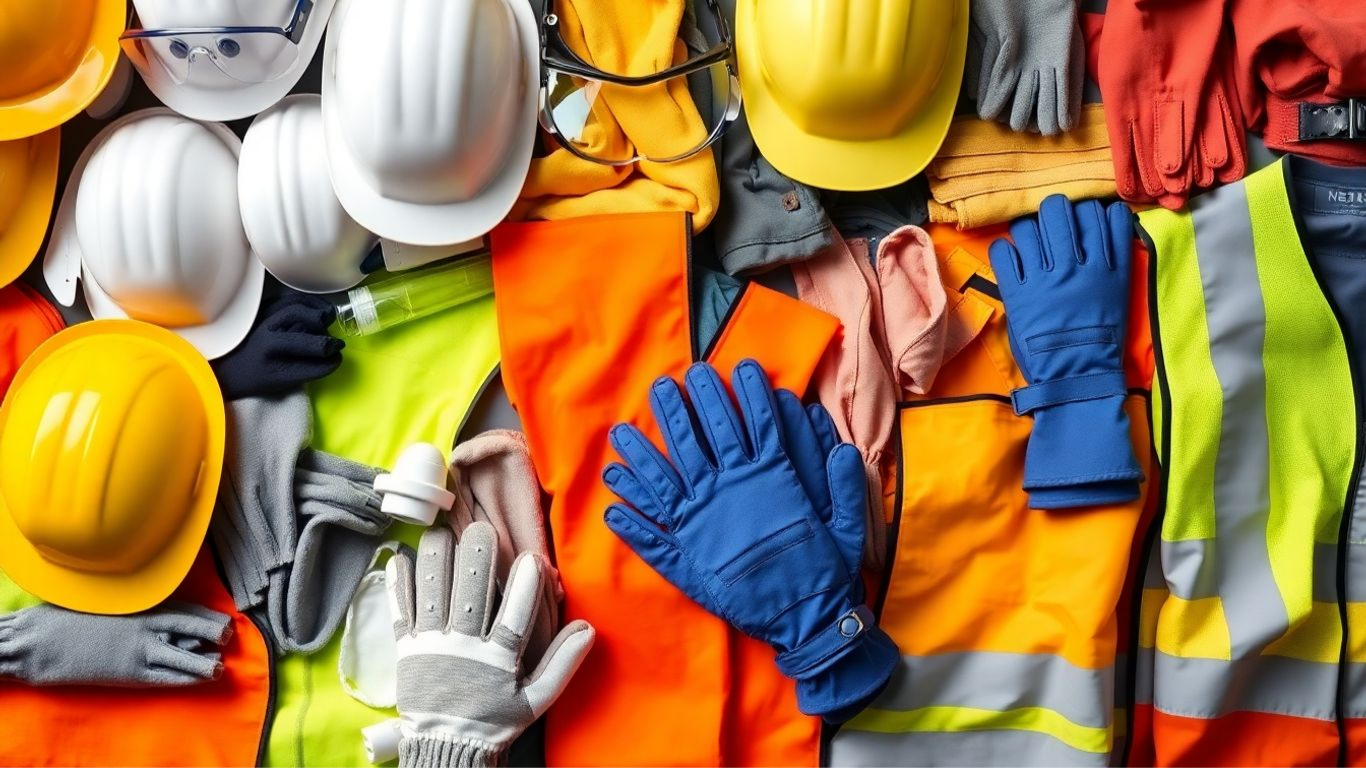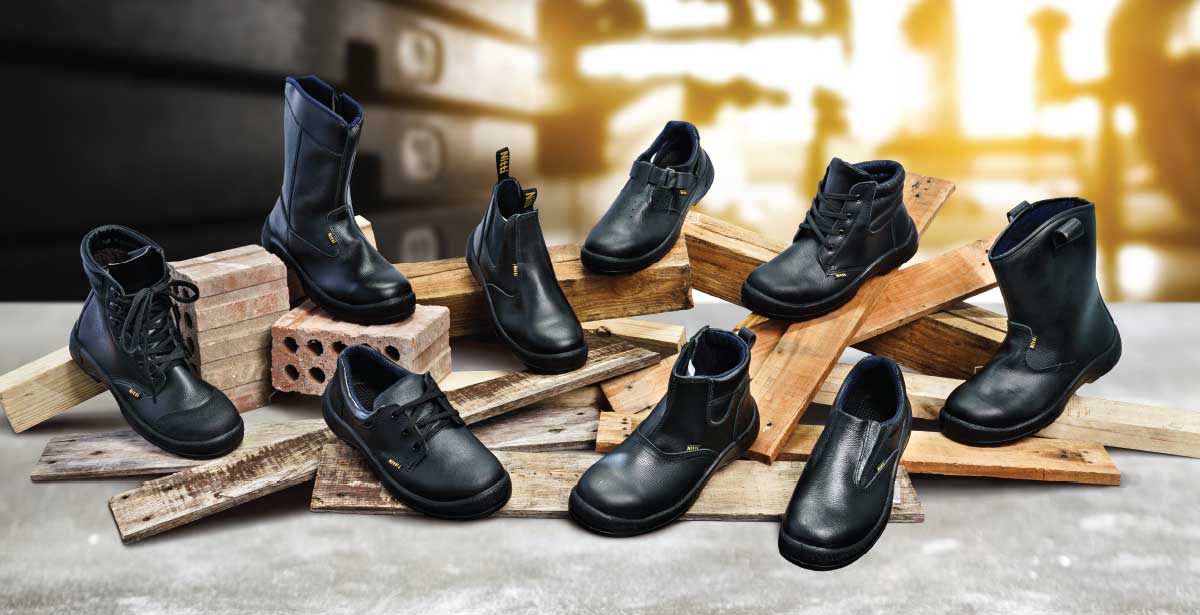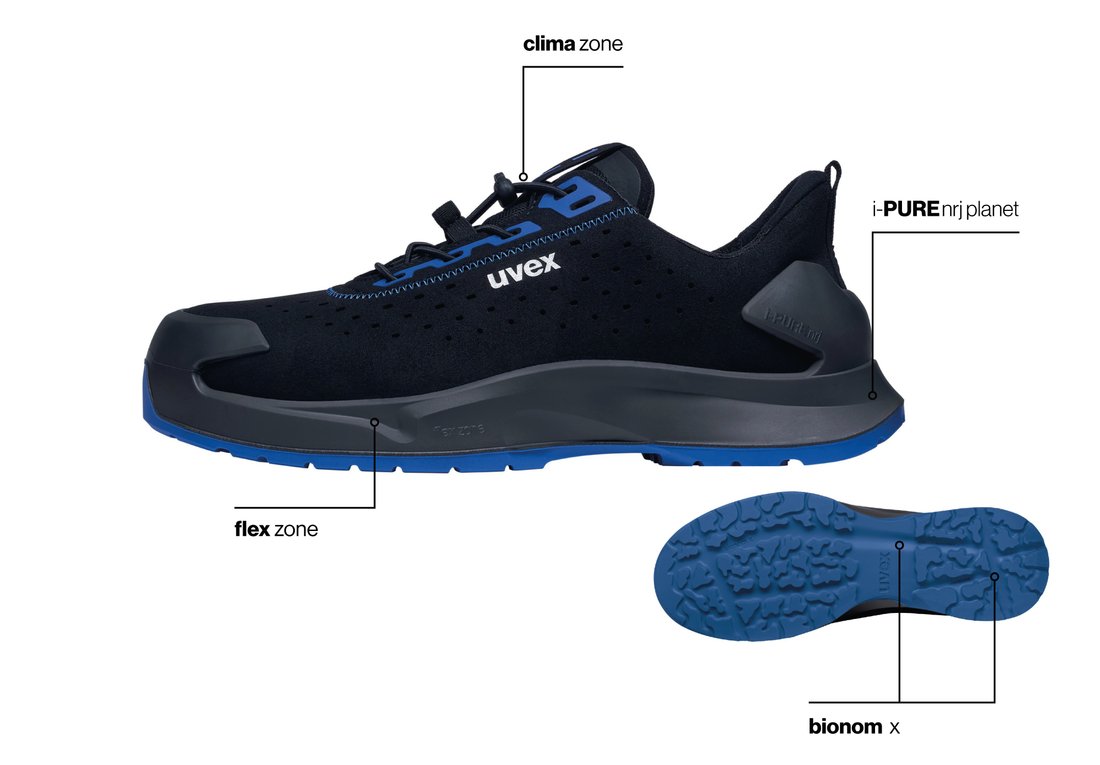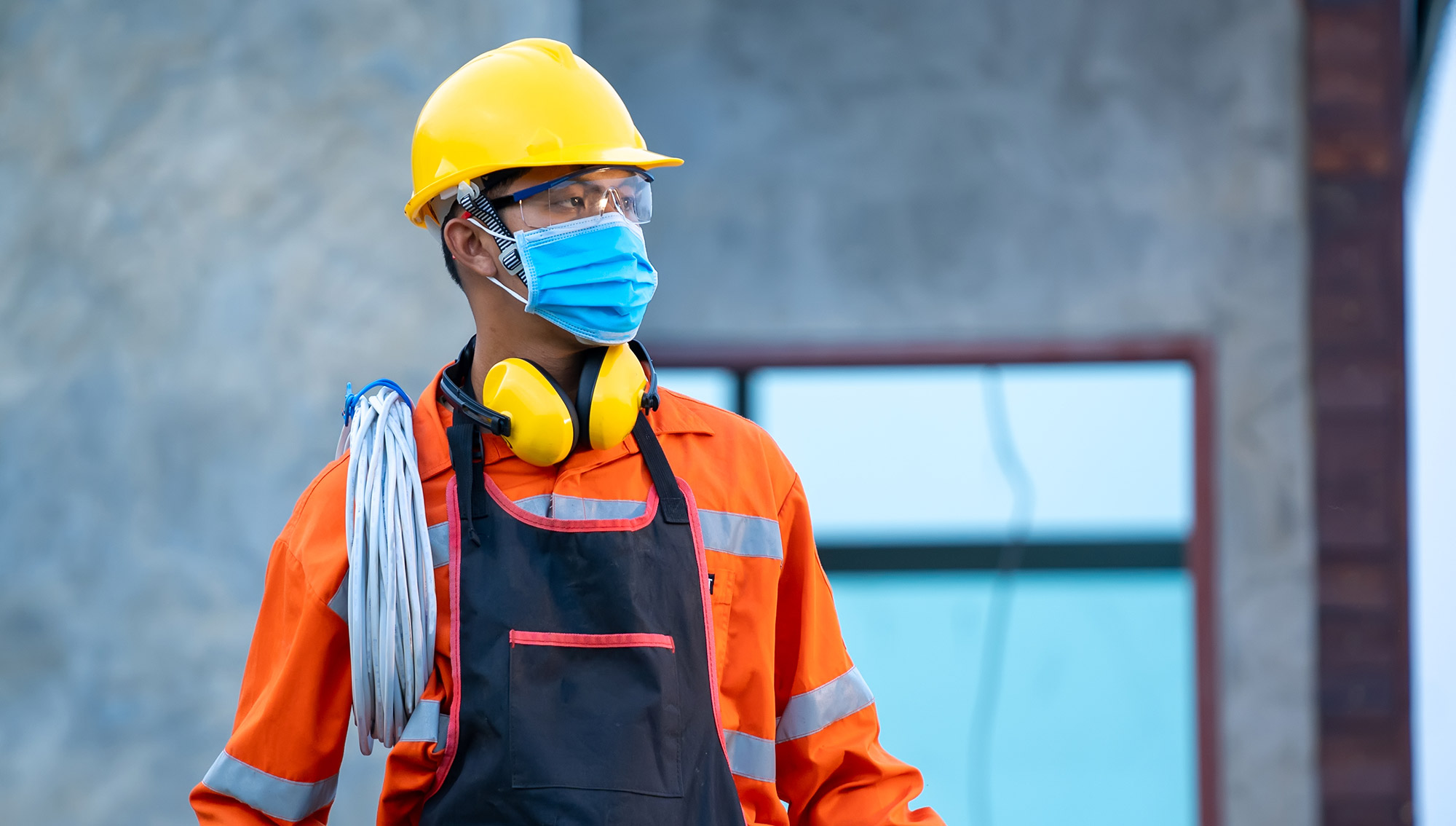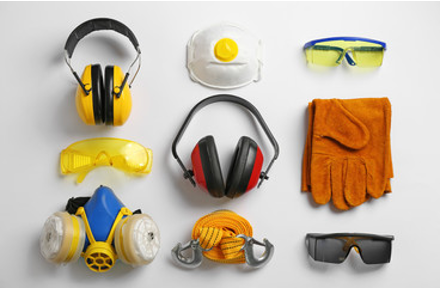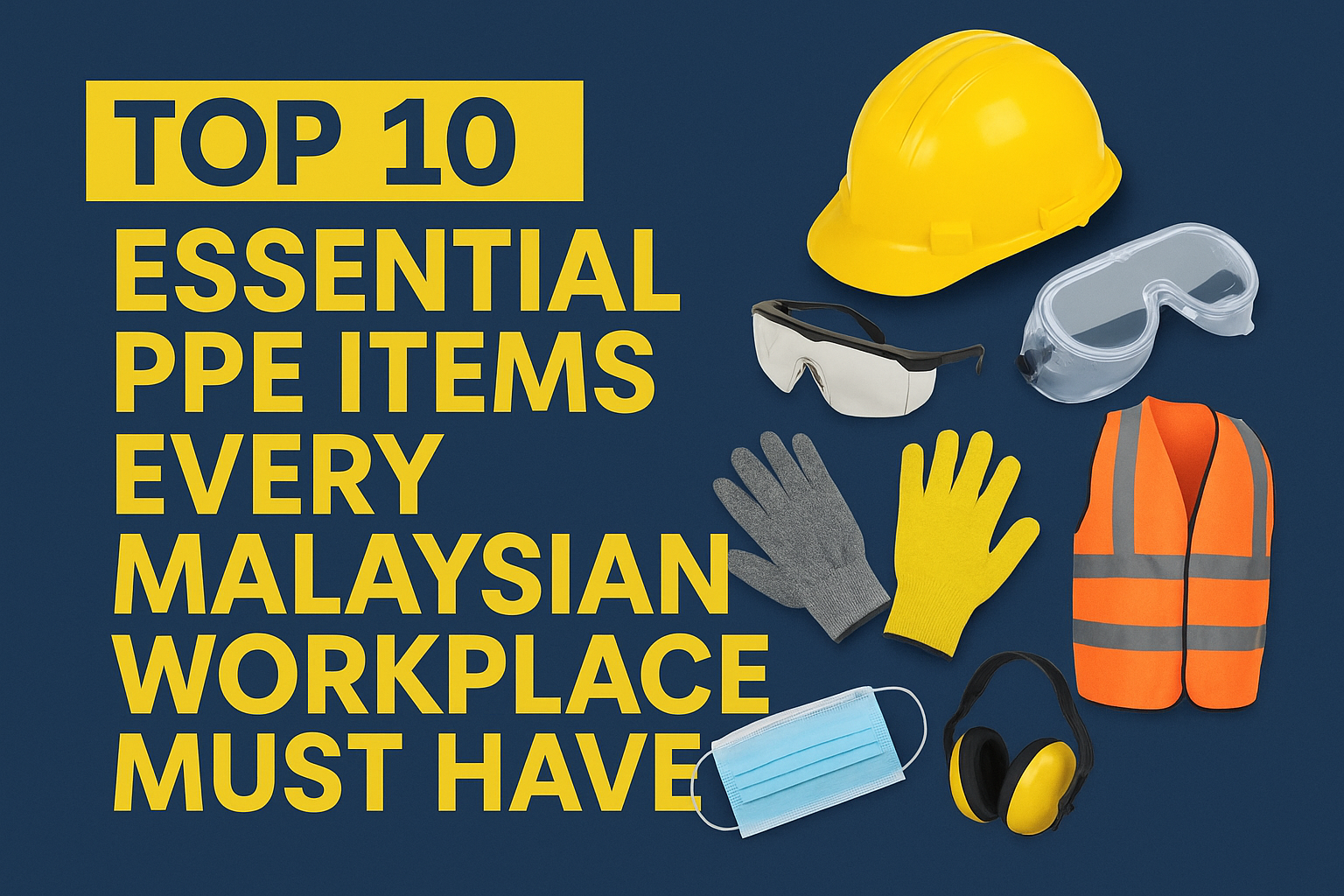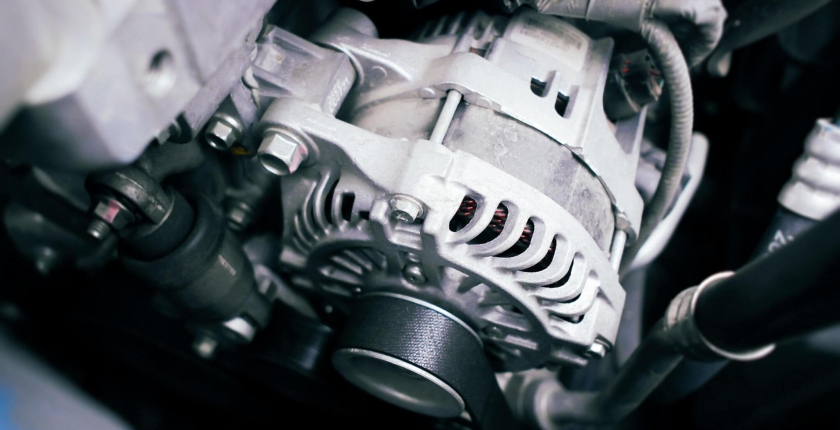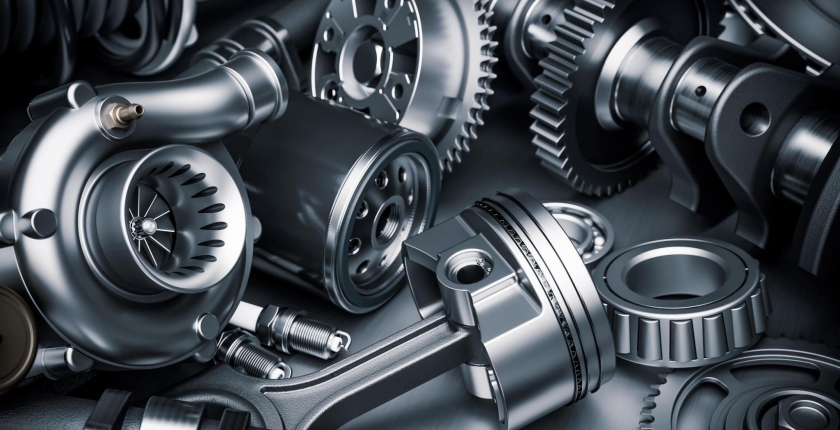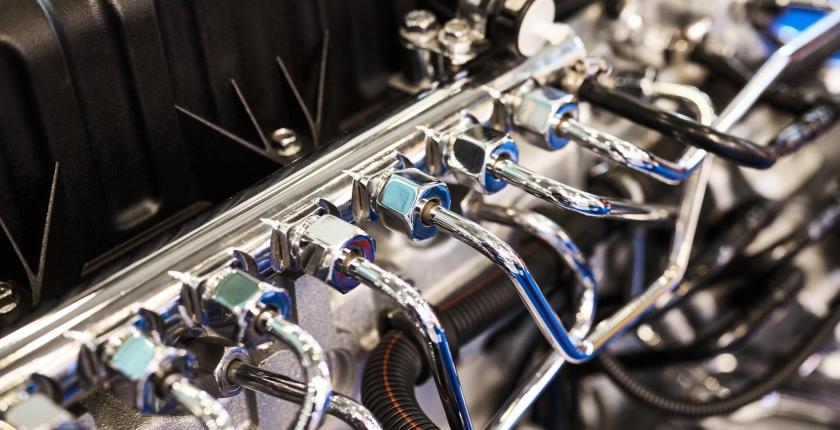Working with electricity in Malaysia requires a sharp focus on safety. It's not just about getting the job done; it's about making sure everyone goes home safe at the end of the day. This guide looks at the gear you need to stay protected, from the basic stuff to the more specialized items. We'll cover what to look for, how to use it right, and why following the rules is so important. Think of this as your go-to resource for understanding Electrical Safety Products Malaysia and keeping risks way down.
Key Takeaways
- Understand voltage levels and the risks tied to them. Higher voltage means more serious dangers, so match your gear to the job.
- Follow the safety steps: eliminate hazards first, then use controls, and finally, rely on personal protective gear like gloves and clothing.
- Specialized gear like arc-flash suits, insulating mats, and insulated tools are vital for specific high-risk tasks.
- Always test your equipment. Voltage detectors, insulation testers, and other measurement devices help confirm safety before you start work.
- Having rescue gear, first-aid, and clear communication plans is key for handling emergencies effectively.
Essential Electrical Safety Products in Malaysia
Working with electricity, especially in Malaysia's diverse industrial and residential settings, means you absolutely need the right gear. It's not just about following rules; it's about making sure everyone goes home safe at the end of the day. We're talking about everything from the basic stuff you wear to the specialized tools that keep you protected when things get tricky.
Understanding Voltage Classes and Risk Profiles
Electricity isn't just one thing; it comes in different strengths, and the risks change a lot depending on that strength. We usually break it down into a few categories:
- Low Voltage (LV):This is what you'll find in most homes and small businesses, typically up to 1,000 volts. The main worry here is electric shock.
- Medium Voltage (MV):Think industrial sites, larger buildings, and some utility work. This is usually between 1,000 and 35,000 volts. The risk of shock is higher, and arc flash events start becoming a bigger concern.
- High Voltage (HV) & Extra-High Voltage (EHV):This is for power transmission lines and major industrial plants, going way above 35,000 volts. Here, arc flash, insulation breakdown, and maintaining safe distances are the big issues.
The higher the voltage, the more serious the potential consequences of an accident. Even when a system is supposed to be off, you can still have dangers like trapped charges in cables or induced voltages from nearby live lines. That's why simply assuming something is safe isn't enough; you have to actively prove it.
The Hierarchy of Controls in Electrical Safety
When we talk about safety, there's a way to think about it that puts the most effective methods first. It's like a ladder, and you always want to climb as high as you can:
- Elimination:Can we just get rid of the hazard altogether? Maybe by doing the work remotely or not needing to work on that part at all.
- Substitution:Can we use a safer method or a less dangerous piece of equipment?
- Engineering Controls:These are physical things that isolate people from the hazard, like safety guards, interlocks on equipment, or physical barriers.
- Administrative Controls:This is about procedures, training, signs, and permits. Things like having a clear work plan, proper lockout/tagout procedures, and making sure everyone knows the risks.
- Personal Protective Equipment (PPE):This is the last line of defense – the gloves, helmets, and clothing. It's super important, but it's there because the other steps weren't enough on their own.
It’s important that everyone, from management setting the rules to the workers on the ground, understands their part in this. Management needs to provide the resources and policies, engineers need to design safe systems, and frontline workers need to follow procedures and use their PPE correctly. Challenging unsafe conditions is everyone's responsibility.
Key Equipment for Low, Medium, and High Voltage Systems
Different voltage levels need different types of protection. Here’s a quick look at some common gear:
- Insulated Gloves:These are graded by class (Class 00, 0, 1, 2, 3, 4) based on how much voltage they can safely handle. You absolutely must use the correct class for the job. They're made from rubber or similar materials and need regular testing.
- Arc-Flash Protective Clothing:For higher voltages, arc flashes are a major risk. This clothing, including suits, hoods, and face shields, is designed to withstand the intense heat and pressure of an arc blast. The level of protection is measured in calories per square centimeter (cal/cm²).
- Insulating Mats and Barriers:These are used on the ground or around work areas to prevent dangerous step and touch potentials, especially in substations or areas with exposed conductors.
- Operating Sticks (Hot Sticks):These are long, insulated poles used to operate switches, disconnects, or test equipment from a safe distance, keeping the worker away from live parts.
- Voltage Detectors:Simple tools to confirm if a circuit is actually dead before you touch it. They come in various forms, from non-contact testers to more robust models.
- Insulation and Earth Resistance Testers:These devices check the integrity of insulation in equipment and verify that grounding systems are effective. They help predict potential failures and confirm safety conditions.
Choosing the right equipment for the specific voltage class and task is non-negotiable. It's about matching the protection to the risk.
Protective Gear for Electrical Work
When you're dealing with electricity, the right gear isn't just a suggestion; it's a necessity. We're talking about keeping yourself safe from shocks and other nasty surprises that can happen when working with live circuits. Think of this gear as your first line of defense.
The Critical Role of Insulated Gloves
Insulating gloves are probably the most talked-about piece of electrical safety equipment, and for good reason. They're made from special rubber compounds designed to stop electricity from flowing through your body. These aren't your average gardening gloves; they're built to handle specific voltage levels. It's super important to pick the right class of glove for the job. Using gloves rated for low voltage when you're working with high voltage is a recipe for disaster.
There are different classes of insulating gloves, each rated for a maximum voltage. It's like having different levels of protection.
- Class 00:Up to 500 volts AC
- Class 0:Up to 1,000 volts AC
- Class 1:Up to 7,500 volts AC
- Class 2:Up to 17,000 volts AC
- Class 3:Up to 26,500 volts AC
- Class 4:Up to 36,000 volts AC
Always check the voltage you'll be working with and choose gloves that meet or exceed that requirement. You can find a wide range of reliable PPE Malaysia gloves designed for various industries.
Selecting High-Quality Electrician Gloves
Picking out the right pair of electrician gloves involves a few key things. First off, the insulation rating is a big deal, as we just talked about. But you also need to think about what the gloves are made of. Rubber is great for insulation, but sometimes you need something tougher for protection against cuts or scrapes. That's where leather protector gloves come in. These are worn over your insulating gloves to give them a bit of armor against physical damage, which helps them last longer.
Comfort and how well you can move your hands are also super important. If your gloves are too stiff or bulky, you're going to have a hard time doing precise work, and that can lead to mistakes. Look for gloves that fit well, allow for good dexterity, and maybe even have features like moisture-wicking liners to keep your hands dry. A good fit means better control and less chance of slipping.
Maintenance and Replacement of Insulating Gloves
Even the best gloves won't protect you if they're damaged. So, taking care of them is a big part of the safety routine. Before every single use, you need to give them a good once-over. Look for any nicks, cuts, holes, or signs of wear and tear. A simple way to check is to inflate them slightly with air and listen for leaks, or just do a thorough visual inspection.
Proper care and regular inspection of your insulating gloves are non-negotiable steps in electrical safety. Neglecting this can turn a reliable safety tool into a dangerous liability.
If you find any damage, don't try to patch them up or use them anyway. It's time for a new pair. Also, keep in mind that insulating gloves have a shelf life and need to be tested periodically, usually by the manufacturer or a certified lab, to make sure their insulating properties are still up to par. Check the manufacturer's recommendations for testing schedules and storage guidelines to keep them in top condition.
Specialized Electrical Safety Equipment
Beyond the basics, certain situations call for gear that's a bit more specific. We're talking about equipment designed to handle extreme conditions or provide an extra layer of protection when standard measures might not be enough. Think arc-flash gear, special mats, and tools that let you work from a distance.
Arc-Flash Protective Clothing
When electricity goes wrong, it can create an arc flash – a super intense burst of heat, light, and pressure. It's seriously dangerous. Arc-flash protective clothing is made to shield workers from this. It's not just one item; it's usually a system that includes a hood, jacket, pants, and sometimes even special underwear. The key is that the fabric has an arc rating, measured in calories per square centimeter (cal/cm²), which tells you how much energy it can withstand before it fails. You need to match this rating to the potential arc flash hazard at the job site.
Here's a quick look at what goes into arc-flash protection:
- Hoods and Face Shields:These cover your head and face, protecting your eyes and skin from the intense flash and heat. Some have clear visors, others are more like hoods.
- Shirts and Jackets:Made from arc-rated fabrics, these cover your torso and arms.
- Pants:Similar to jackets, these protect your legs.
- Coveralls:These are one-piece suits that offer full body coverage.
- Balaclavas and Gloves:These provide protection for your neck, head, and hands, often worn under the main gear.
It's vital that this clothing fits well and covers all exposed skin. Gaps can let the arc energy in, defeating the purpose of the gear.
Insulating Mats and Barriers
Sometimes, you need to create a safe zone or prevent accidental contact with energized parts. That's where insulating mats and barriers come in. Insulating mats are placed on the floor, especially in front of control panels or switchgear. They help prevent dangerous step potentials – where a voltage difference can exist between your feet if you're standing on ground with different electrical potentials. These mats are rated for specific voltage levels, so you pick the right one for the job.
Barriers, on the other hand, are physical structures used to keep people away from hazardous areas. Think temporary fencing or screens that clearly mark off a work zone. They're a good way to manage approach distances and prevent unauthorized access.
Operating Sticks and Insulated Tools
When you need to operate switches, open breakers, or move equipment from a safe distance, operating sticks (often called 'hot sticks') are your best friend. These are long, non-conductive poles made from fiberglass or similar materials, with attachments at the end to grab or manipulate electrical components. They allow workers to maintain a safe distance from live parts, significantly reducing the risk of shock.
Insulated tools are also a must-have. These are everyday tools like pliers, screwdrivers, and wrenches that have a thick layer of insulating material covering the metal parts. This insulation is rated for specific voltages. Using insulated tools is a simple but effective way to protect yourself if you accidentally touch a live conductor.
Proper care and regular inspection of these specialized items are non-negotiable. Contamination, damage, or wear can compromise their insulating properties, turning a safety device into a hazard. Always follow manufacturer guidelines for cleaning, storage, and testing.
Testing and Measurement Devices
When you're working with electricity, especially in Malaysia where regulations are strict, having the right tools to check things is super important. It's not just about getting the job done; it's about making sure nobody gets hurt. These testing and measurement devices are your eyes and ears when it comes to confirming that circuits are safe to touch.
Voltage Detectors for Proving Dead
This is probably the most basic, yet one of the most critical, steps before you start any electrical work. You absolutely need to confirm that a circuit is de-energized. A voltage detector does just that. It's designed specifically to indicate the presence or absence of voltage. Don't ever rely on just looking at a switch or assuming something is off.
- How they work:Most use capacitive coupling to sense voltage. When you touch the probe to a conductor, if there's voltage present, it'll give you a signal, usually an audible beep and a visual light.
- Types:You've got non-contact voltage testers (NCVTs) that can detect voltage without touching the conductor, and contact testers that require direct contact. For proving dead, a contact type is generally preferred for certainty.
- Key point:A multimeter measures voltage, but a voltage detector confirms the absence of voltage. They aren't interchangeable for this safety step.
Insulation and Earth Resistance Testers
Once you've proven a circuit is dead and you're ready to work, or when you're installing new equipment, you need to check the integrity of the system. Insulation resistance testers (often called megohmmeters or 'meggers') check how well the electrical insulation is holding up. Bad insulation can lead to shorts or shocks. Earth resistance testers, on the other hand, verify that your grounding system is effective. A good earth connection is vital for safety, providing a path for fault current to go safely to the ground.
- Insulation Testers:Apply a high DC voltage to the insulation and measure the resistance. High resistance means good insulation; low resistance is a warning sign.
- Earth Resistance Testers:Measure the resistance of the earth electrode and the soil around it. Low resistance is what you want here.
- Why they matter:These testers help you spot problems before they become dangerous failures. They're great for routine checks and for troubleshooting.
Phase Comparators for Safe Paralleling
This one is more for when you're dealing with systems that might have multiple power sources or when you need to connect different parts of a grid together. A phase comparator helps you make sure that two circuits or sources are in sync – meaning they have the same voltage, frequency, and phase angle – before you connect them. Trying to connect out-of-sync sources can cause serious damage to equipment and create hazardous conditions. It's all about making sure everything lines up perfectly before you flip that switch.
The golden rule for electrical work is simple: prove dead, apply earths, then start work. Testing devices are your primary tools for the 'prove dead' step. Always use the right tool for the job, and never skip these checks, no matter how experienced you are or how familiar you are with the system.
Remember, these tools aren't just gadgets; they are vital pieces of safety equipment. Keeping them in good condition, calibrated, and knowing how to use them properly is part of being a responsible electrician or technician in Malaysia.
Emergency Preparedness and Rescue
When working with electricity, things can go wrong fast. Having a solid plan for emergencies isn't just a good idea; it's a must. This means having the right gear ready to go and knowing how to use it.
Rescue Hooks for Shock Incidents
If someone gets shocked, the first thing you need to do is get them away from the power source. But you can't just grab them – you'd get shocked too! That's where a rescue hook comes in. It's basically a long, non-conductive pole with a hook on the end. You can use it to pull the person to safety without putting yourself in danger. Always keep these easily accessible near work areas.
First-Aid Kits and AEDs
Once the person is safe, you need to act quickly. A well-stocked first-aid kit is vital for treating burns or other injuries. More importantly, having an Automated External Defibrillator (AED) on-site can be a lifesaver. In cases of cardiac arrest, immediate defibrillation significantly increases the chances of survival. Knowing where these are and how to use them is part of your emergency plan.
Emergency Lighting and Communication
Imagine an emergency happens in a dimly lit area or during a power outage. It's chaos. Good emergency lighting ensures clear paths for evacuation and allows rescuers to see what they're doing. Reliable communication is also key. Whether it's radios or charged mobile phones, you need a way to call for help and coordinate the response. Don't forget to test these systems regularly.
Standards and Compliance in Malaysia
When you're dealing with electricity, especially in a professional setting here in Malaysia, making sure everything meets the right standards is super important. It's not just about following rules; it's about keeping people safe and making sure your equipment works right.
Key Certifications for Electrical Safety Products
Lots of electrical safety gear needs to meet specific benchmarks to prove it's up to the job. In Malaysia, you'll often see references to international standards, which is a good sign. For things like insulated gloves, you'll want to look for certifications that show they've been tested for electrical resistance. Standards like IEC 60903 are common for gloves used in live working environments. For other equipment, like circuit breakers or wiring, compliance with Malaysian standards (MS) or international equivalents is usually required. Always check the product's documentation for its certification marks.
Documentation and Record Keeping
Keeping good records is a big part of electrical safety compliance. This means having all the paperwork for the safety equipment you buy. Think about things like:
- Certificates of conformity
- Test reports for insulating equipment
- Maintenance logs for safety gear
- User manuals and instructions
This documentation helps you prove that your equipment is safe and has been looked after properly. It's also really helpful if you ever need to track down a problem or show an inspector that you're doing things by the book.
Choosing Reputable Malaysian Manufacturers
Finding reliable suppliers is key. Malaysia has a strong manufacturing base, especially for rubber products, which is great for things like insulated gloves. When you're looking for suppliers, try to find ones that:
- Have a good track record in the industry.
- Can provide clear details about their products and the standards they meet.
- Offer good customer support, including after-sales service.
It's often a good idea to ask for samples or check reviews if possible. Buying from a known, reputable source usually means you're getting products that are built to last and meet the safety requirements you need. Don't be afraid to ask questions about their manufacturing processes and quality control measures.
Staying compliant isn't just a one-time thing. It requires ongoing attention to detail, regular checks, and a commitment to using only certified and well-maintained safety equipment. This proactive approach is what truly protects workers and prevents accidents.
Wrapping Up: Staying Safe with the Right Gear
So, we've gone over a bunch of stuff about electrical safety products here in Malaysia. It’s a lot to take in, I know. But really, it all boils down to picking the right tools for the job and using them correctly. Whether it's gloves that actually protect you from shocks, or those other bits and pieces that keep things from going wrong, having good gear is super important. Don't just grab the cheapest thing you see; think about what you're actually doing and what could happen. Taking a bit of time to get this right means you can get your work done without worrying so much about getting hurt. Stay safe out there.
Frequently Asked Questions
What's the main goal of this guide about electrical safety gear in Malaysia?
This guide helps you figure out the right safety gear for different electrical jobs, whether it's low, medium, or high voltage. It explains the risks, what gear to use, and how to keep it in good shape, making sure your work is safe and meets all the rules.
Why is it still important to put temporary grounds on wires even after they've been turned off?
Even when power is off, wires can still hold a lot of stored electricity or get power from nearby lines. Adding temporary grounds safely drains this extra power and protects workers from unexpected shocks. It's a crucial step after proving the wires are dead.
How do I pick the right protective clothing for arc flashes?
You need to know how much energy a potential arc flash could release at your work location. Then, you choose clothing and gear that can handle at least that much energy. Make sure the gear covers everything, like your neck and wrists, to prevent any gaps.
Can I use a regular multimeter to check if wires are safe to touch?
No, a multimeter is for measuring voltage, not for confirming that a wire is dead. You need a special voltage detector designed specifically to prove that there's no power before you start working. It's a vital safety step.
How often should my electrical safety gear be tested or checked?
It's important to follow the manufacturer's advice and any official standards. The frequency also depends on how often you use the gear. Keeping good records helps you know when the next test or check is due and prevents you from using old, unsafe equipment.
What's a simple but effective way to improve electrical safety?
A great improvement is to make sure all safety gear has clear tracking. Use things like QR codes or RFID tags on your equipment. This makes it easy to see when it was last checked, when it's due for testing, and prevents anyone from accidentally using gear that's past its safe date.
Finding the right place to get your safety gear in Johor can feel like a treasure hunt. You need stuff that actually works, won't break the bank, and comes from a company you can count on. Whether you're outfitting a whole crew or just need a few things for yourself, knowing who to go to makes all the difference. We've looked into some of the top spots for PPE Supplier Johor, so you can spend less time searching and more time staying safe on the job.

Key Takeaways
- Haisar Supply and Services focuses on providing reliable gear and good customer service, making them a trusted PPE Supplier Johor.
- BlackSafe Outlet offers a huge selection of safety shoes and other gear, with options to shop online or in-store.
- Safetyware Group is a big player in the Asia Pacific region, known for their own brands and distributing global safety product names.
- When choosing a PPE Supplier Johor, look for ones that meet certifications and compliance standards for quality assurance.
- A good PPE supplier should offer clear communication, a wide product range, and support to help you find the right safety equipment.
1. Haisar Safety Solutions
When you're looking for safety gear in Johor, Haisar Safety Solutions is a name that pops up quite a bit. They've really made a name for themselves by focusing on providing reliable and good quality protective equipment. It’s not just about selling stuff; they seem to genuinely care about making sure workers stay safe on the job. They carry a pretty wide range of products, so you can often get most of what you need from one place.
Haisar aims to be a one-stop supplier for your workplace safety needs. They understand that different jobs have different risks, and they try to have the right gear for various industries, from construction sites to factory floors. It’s nice to deal with a company that listens to what you actually need rather than just pushing whatever is on saleYou can explore their full range and find out more about their locations on their website, www.haisar.com.
Here’s a quick look at what makes them a solid choice:
- Wide Product Selection:They stock everything from basic helmets and gloves to more specialized items. You can find safety shoes, eyewear, masks, and even fall protection equipment.
- Focus on Quality:Haisar makes an effort to ensure the products they offer meet safety standards. They work with reputable brands and check their items to make sure they'll actually do the job they're supposed to.
- Customer Support:Their team is known for being helpful. If you're not sure what you need, they can guide you through the options and help you pick the right equipment for your specific work environment.
It’s easy to get lost in all the different types of safety gear out there. Haisar tries to simplify that process by offering dependable products and straightforward advice. They want to make sure you’re protected without adding unnecessary stress to your day.
They also seem to be pretty good about handling any issues that come up, which is always a plus when you're dealing with suppliers. If you're in Johor and need a PPE supplier that's reliable and easy to work with, Haisar Safety Solutions is definitely worth checking out.
2. BlackSafe Outlet
When you're on the hunt for dependable safety gear in Johor, BlackSafe Outlet is a name that keeps popping up. They've built a solid reputation for providing a wide array of safety products, from sturdy safety shoes to essential protective wear. It's kind of like a one-stop shop for anyone who needs to stay safe on the job.
What really sets them apart is their commitment to stocking well-known brands. You'll find names like Black Hammer, Hammerland, and SafeX among their selections. This means you're not just getting any old gear; you're getting products that have a track record for quality and durability. They aim to be your go-to for all things safety, making sure you don't have to compromise on protection or comfort.
Here's a quick look at what makes BlackSafe Outlet a strong contender:
- Extensive Product Range:They carry everything from industry-leading safety shoes designed for tough environments to essential accessories like high-visibility vests and protective gloves.
- Trusted Brands:They partner with reputable brands known for their innovation and commitment to safety standards.
- Flexible Shopping:Whether you prefer browsing in person at one of their many outlets across Malaysia or shopping online from the comfort of your home, BlackSafe Outlet makes it easy.
- Customer Focus:They emphasize quality checks and offer dedicated after-sales support, so you can shop with confidence.
BlackSafe Outlet understands that finding the right safety equipment can be a challenge. They focus on providing clear information and helpful advice to guide you through their product selection, ensuring you get the best fit and protection for your specific needs. It's about more than just selling products; it's about building trust and ensuring worker well-being.
If you're looking for a supplier that combines a broad selection with a focus on quality and customer service, BlackSafe Outlet is definitely worth checking out. You can explore their full range and find out more about their locations on their website, www.blacksafeoutlet.com.
3. Safetyware Group
Safetyware Group is a pretty big name when it comes to safety gear in the Asia Pacific region. They've got factories and offices spread out across Malaysia, Singapore, Thailand, China, and Australia, which means they can reach a lot of places. They make and supply a wide variety of Personal Protective Equipment (PPE) and other safety products.
They have their own brands like Safetyware, RHINO SHOE, Cleanware, and QuickSign, which are known for being dependable. On top of that, they also distribute products from well-known international brands. This gives them a really wide selection of items to offer.
Safetyware Group has been around for over 20 years, building up a lot of knowledge about what companies need to keep their workers safe. They focus on developing new products and providing complete safety solutions, not just selling individual items. They also offer training programs to help businesses improve their safety practices.
Here's a look at some of the brands they carry:
- Safetyware
- RHINO SHOE
- Cleanware
- QuickSign
- Zoll
- KStrong
- Ultitec
- Sundstrom
- Superior Gloves
- CATU
- Lenzing
- MSA
- Pacific Handy Cutter
They've worked with over 10,000 corporate clients, including some big multinational companies. This kind of track record suggests they know what they're doing and can be a reliable partner for your safety needs.
4. Safety Helmets
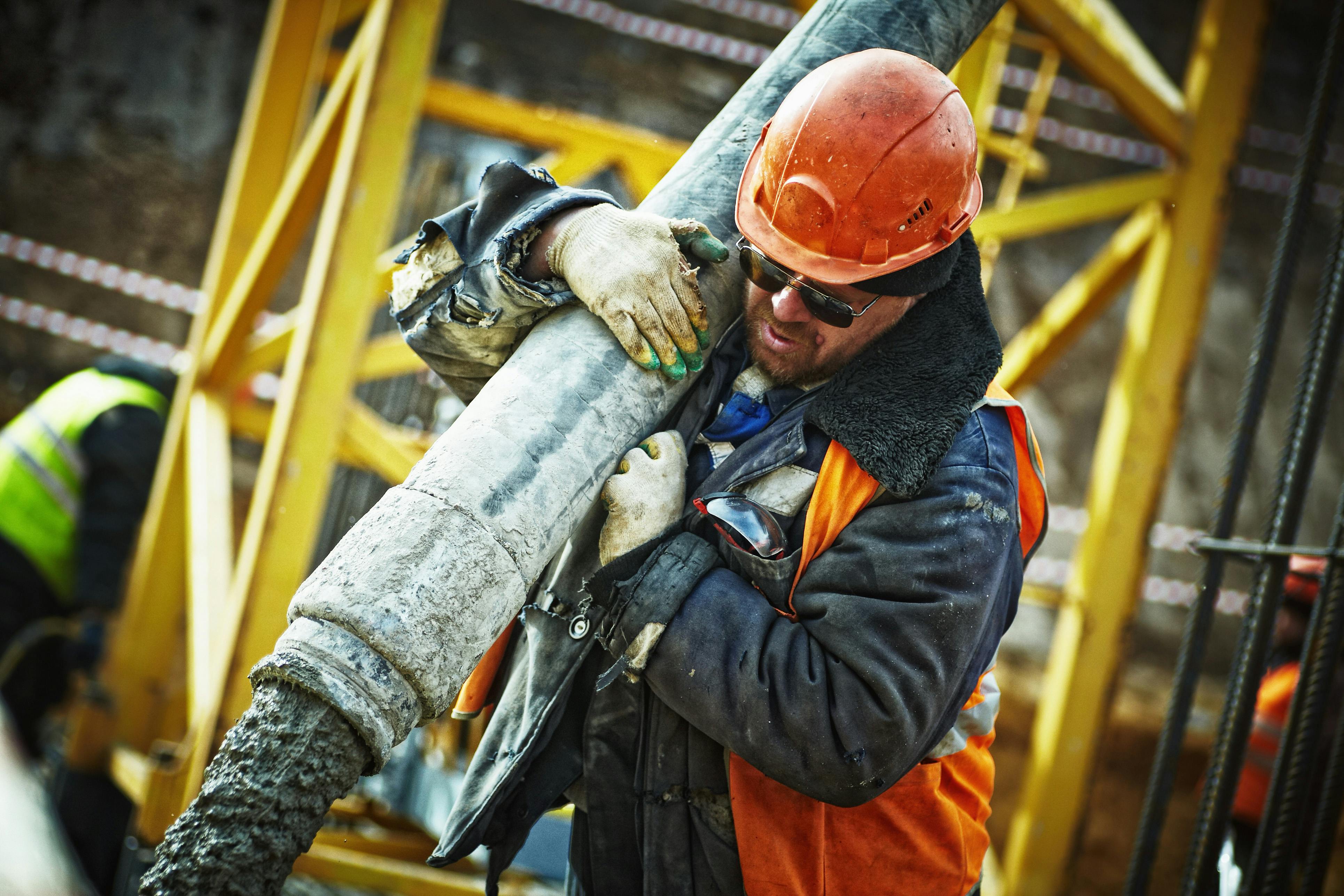
When you're on a job site, especially one with overhead work or potential falling objects, a helmet isn't just a suggestion; it's a critical piece of gear. Think of it as your personal shield against serious head injuries. Modern safety helmets are designed to be more than just a hard shell. They're engineered with comfort in mind, often featuring adjustable suspension systems and sweatbands so they don't feel like a burden after a few hours.
The right helmet can be the difference between a minor bump and a life-altering injury. They're built from tough materials capable of absorbing significant impact, protecting you from things like falling tools, debris, or even accidental bumps against structures.
Here’s a quick look at what makes a good helmet:
- Impact Resistance:Designed to withstand and distribute the force of impacts.
- Adjustability:Features like suspension bands and chin straps ensure a snug, comfortable fit for different head sizes, preventing slippage.
- Durability:Made from materials that hold up against daily wear and tear in tough environments.
Choosing a helmet that fits well and meets safety standards is non-negotiable. It’s about ensuring you can focus on your work without worrying about what might happen if something falls from above. A well-fitting helmet stays put, offering reliable protection throughout your shift.
5. Safety Shoes

When you're on a job site, your feet are pretty much on the front lines. Think about it – you're walking around heavy machinery, tools, maybe even sharp debris. It's easy to overlook foot protection, but a serious foot injury can really put you out of commission. That's where good safety shoes come in. They're not just heavy boots anymore; there's a whole range designed for different kinds of work and hazards.
Choosing the right pair is about matching the shoe to the specific risks of your job. For instance, if you're working in construction or a factory where things might fall, steel-toe boots are a must. They're built to withstand significant impact. If your workplace is often wet or has oil spills, like in a kitchen or some labs, you'll want shoes with slip-resistant soles to keep you from taking an unexpected tumble. For those working with electricity, insulated boots offer an extra layer of protection against shocks. And if your job involves a lot of moving around and you don't need heavy-duty protection, there are lighter options that still offer good support and safety features.
Here’s a quick look at some common types and what they’re good for:
- Steel-Toe Boots:Great for construction, manufacturing, and anywhere falling objects are a risk. They protect your toes from crushing injuries.
- Slip-Resistant Shoes:Ideal for food service, healthcare, or any environment with slick floors. They provide better grip to prevent slips and falls.
- Electrical Hazard (EH) Boots:Designed with non-conductive soles and heels to protect against electrical currents. Essential for electricians and those working near live circuits.
- Puncture-Resistant Shoes:Feature a plate in the sole to stop sharp objects, like nails or glass, from piercing through.
- Lightweight Safety Shoes:Offer protection without the bulk, suitable for logistics or roles requiring more agility.
Don't underestimate the importance of foot safety. A simple pair of well-chosen safety shoes can prevent a lifetime of pain or disability. It’s a small investment for a huge return in personal well-being and continued ability to work.
Many suppliers in Johor offer a variety of these safety shoes, often from well-known brands that are tested and certified. When you're looking, check for certifications like DOSH SIRIM, which indicate the footwear meets safety standards. It’s worth taking the time to find a supplier who understands these different needs and can guide you to the best option for your specific work environment.
6. Safety Gloves
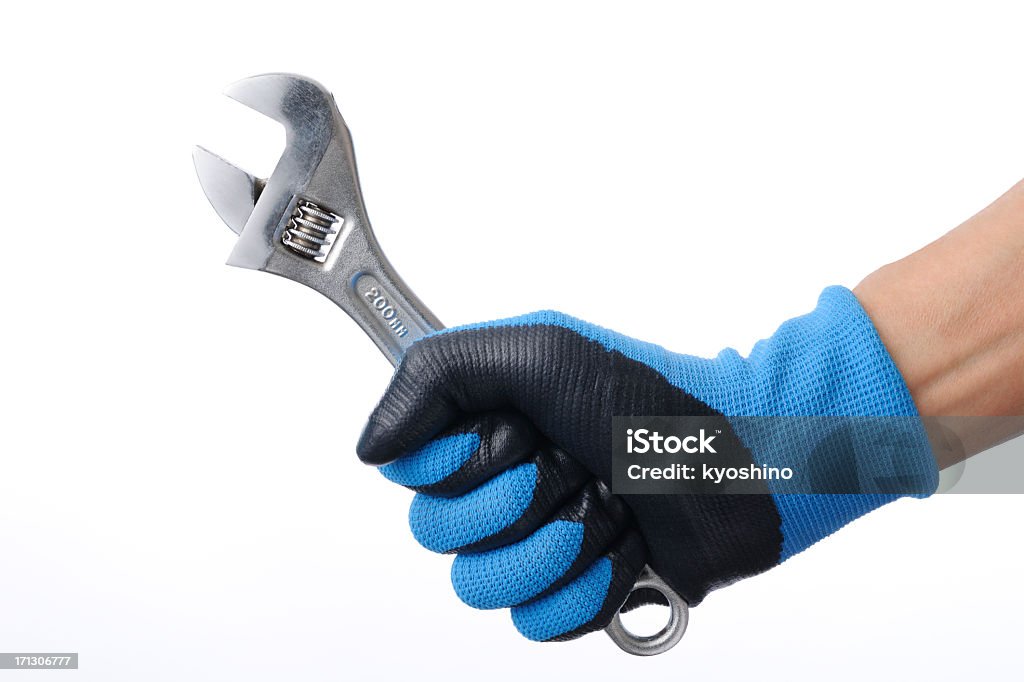
Your hands are probably the most used part of your body when you're on the job, right? They're constantly grabbing, lifting, and manipulating things, which means they're also super exposed to all sorts of dangers. That's why picking the right safety gloves isn't just a suggestion; it's a necessity. You wouldn't use a butter knife to chop wood, and you shouldn't use the wrong gloves for a risky task.
There's a whole bunch of different gloves out there, and they're not interchangeable. You've got your basic disposable ones for keeping things clean, but then there are heavy-duty ones for handling sharp stuff or hot materials. For example, if you're working with chemicals, you need gloves made from materials like nitrile or PVC that won't break down. If welding is part of your day, you'll need heat-resistant gloves with good thermal insulation. And for electrical work? Insulated rubber gloves are a must to prevent shocks.
Here's a quick rundown of some common types and what they're good for:
- Cut-Resistant Gloves:Great for jobs involving metal, glass, or anything sharp. They often have reinforced fibers to stop blades from slicing through.
- Chemical-Resistant Gloves:Essential for lab work, cleaning, or handling hazardous substances. Look for nitrile or PVC coatings.
- Heat-Resistant Gloves:Needed for welding, foundry work, or any task where you're dealing with high temperatures. They provide thermal protection.
- Electrical Insulated Gloves:Absolutely vital for anyone working near live electrical wires. They're made of special rubber to block electricity.
Picking the right glove means thinking about the specific hazards you'll face. It's not just about comfort; it's about making sure your hands stay safe from cuts, burns, chemical exposure, or electrical shock. A good supplier can help you figure out which type is best for your particular job.
When you're looking for these, remember that brands like those found at Alliance Supplies often have detailed specs on what each glove is designed to protect against. Don't just grab the first pair you see; take a moment to check if they match the risks of your work. Your hands will thank you later.
7. Fall Protection Equipment
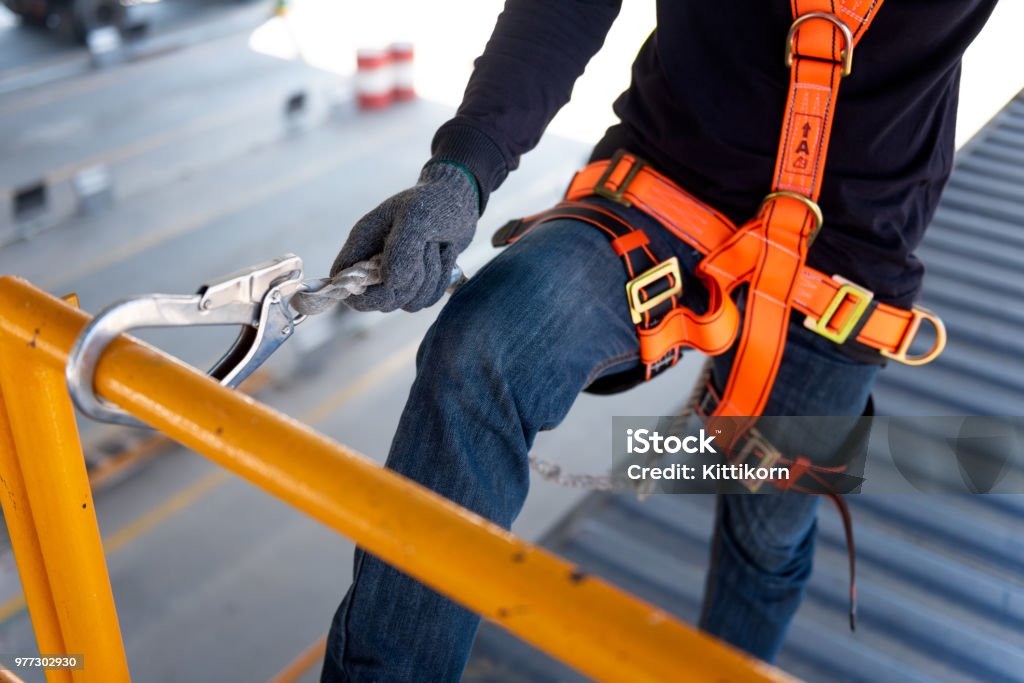
Working at heights is a serious business, and when you're up there, the right gear isn't just a suggestion, it's your lifeline. We're talking about fall protection equipment, the stuff that keeps you from taking an unplanned trip to the ground. Think about construction sites, high scaffolding, or even just maintenance work on a roof – these are all places where a fall can happen in a blink.
Having reliable fall protection gear can literally be the difference between going home safe and ending up in the hospital. It's not about being scared; it's about being smart and prepared. This equipment is designed to catch you, slow you down, or anchor you securely, preventing severe injuries.
Here's a quick rundown of the main types you'll find:
- Full Body Harnesses:These are designed to distribute the force of a fall across your entire body, not just a single point, making the impact much more manageable.
- Shock-Absorbing Lanyards:These connect your harness to an anchor point and have a special mechanism that expands during a fall, reducing the shock your body experiences.
- Self-Retracting Lifelines (SRLs):Often called 'yo-yo' devices, these automatically extend and retract as you move. If you fall, they lock up instantly, stopping your descent.
- Anchor Points:These are the strong, secure points on a structure where you attach your lanyards or lifelines. Without a solid anchor, the rest of the system is useless.
It might seem like a lot to think about, but when you're working high up, every piece plays a role. Choosing the right equipment means you can focus on your job without constantly worrying about what might happen if you slip. For a wide selection of safety gear, including fall protection, check out Alliance Supplies.
The importance of proper fall protection cannot be overstated. It's a critical component of workplace safety for anyone working at elevation. Regular inspection and maintenance of this equipment are just as vital as the initial purchase to ensure it functions correctly when needed most.
8. Eyewear

When you're on the job, keeping your eyes safe is super important. It's not just about following rules; it's about making sure you can see clearly for years to come. Think about all the stuff that can fly around on a worksite – dust, little bits of metal, maybe even some splashes. Protective eyewear is your first line of defense against all that.
There are a few main types you'll see. You've got your basic safety glasses, which are lightweight and good for general tasks. Then there are goggles, which fit a bit tighter around your eyes and are better for keeping out dust and liquids. If you're dealing with a lot of flying debris, a face shield offers even more coverage. Choosing the right kind depends on what you're doing.
Here's a quick rundown:
- Safety Glasses:Great for everyday use, like in a workshop or when handling light materials.
- Safety Goggles:Ideal for jobs involving chemicals or a lot of dust, offering a better seal.
- Face Shields:Best for tasks with a high risk of flying particles, like grinding or heavy demolition.
Don't forget about the lenses, either. Clear lenses are standard, but you might need tinted ones for working outdoors or in bright conditions. Some advanced options even have anti-fog coatings, which can be a lifesaver when you're working up a sweat. It's worth checking out suppliers like Alliance Supplies to see their range.
You only get one pair of eyes, so taking a moment to put on the right protection is a small step that makes a big difference. It's really not worth the risk to skip this part of your PPE.
When you're looking for eyewear, think about comfort too. If they don't fit well or keep slipping down your nose, you're less likely to wear them consistently. Many suppliers offer adjustable features to help you get a snug, comfortable fit.
9. Masks
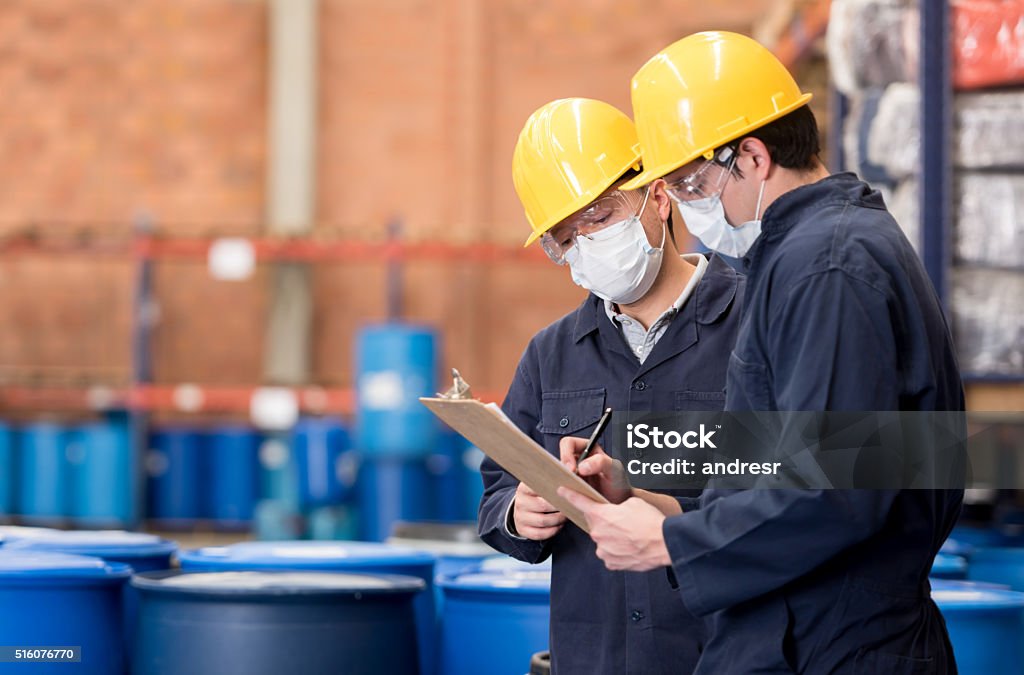
When you're working in environments where dust, fumes, or airborne particles are a concern, the right mask isn't just a suggestion – it's a necessity. Breathing in clean air is something we often take for granted until it's compromised. Having the correct respiratory protection can make a significant difference in your day-to-day comfort and long-term health.
Different jobs call for different types of masks. For quick tasks like sweeping or light demolition, disposable dust masks are usually sufficient. They're lightweight and easy to use. If you're dealing with more specific hazards, like solvents or fine particulates, a reusable half-face respirator with interchangeable filters is a better bet. These allow you to customize the protection based on the contaminants present. For jobs that require both lung and eye protection, such as paint spraying or working with certain chemicals, full-face respirators offer the most complete coverage.
Here's a quick rundown of common mask types:
- Disposable Dust Masks:Ideal for low-level dust and particles. Easy to wear and discard.
- Half-Face Respirators:Versatile with replaceable filters for various airborne hazards. Offers good protection without being too cumbersome.
- Full-Face Respirators:Provides maximum protection, covering both the eyes and respiratory system. Best for high-risk environments.
Choosing the right mask also means considering comfort. A mask that fits poorly or fogs up your vision can be just as problematic as not wearing one at all. Look for options that provide a good seal and are comfortable for extended wear.
Ultimately, selecting the appropriate mask is a small step that has a big impact on your well-being at work. Don't underestimate the importance of clean air.
10. Certifications and Compliance
When you're looking for safety gear, especially in a place like Johor, it's super important to check out the certifications and make sure everything is up to snuff. It's not just about getting the cheapest stuff; it's about making sure the gear actually works when you need it to. You want to be sure that what you're buying meets the right standards.
Think about it like this: a hard hat is supposed to protect your head, right? If it doesn't meet certain safety tests, it might as well be made of cardboard. The same goes for gloves, eyewear, or any other piece of equipment. You need to know it's been tested and approved.
Here are some common things to look out for:
- ISO 9001:This is a big one. It basically means the company has a good system for making sure their products are consistent and meet quality expectations. It's all about quality management.
- CE Marking:If you're dealing with products that need to meet European safety standards, you'll see this. It means the product meets health, safety, and environmental protection requirements.
- Local Standards:Depending on the specific type of gear, there might be Malaysian standards or specific industry certifications that are important.
It's also a good idea to ask suppliers for documentation. They should be able to show you test reports or certificates that prove their products meet the required safety benchmarks. Don't be shy about asking; it's your safety on the line.
Sometimes, suppliers might offer training or have their own quality control processes. While these aren't official certifications, they can be a good sign that a company cares about safety beyond just selling products. It shows they're invested in making sure their gear is reliable and that people know how to use it properly.
Wrapping Up Your Search for Safety Gear
So, you've looked at some of the top spots in Johor for getting your safety equipment. Whether you checked out Haisar Safety Solutions for their straightforward approach and good service, or maybe BlackSafe Outlet for their wide selection and convenient shopping options, the main thing is finding a supplier you can count on. Workplace safety is no joke, and having the right gear makes a big difference. It’s about making sure everyone goes home safe at the end of the day. Take your time, compare what’s out there, and pick the supplier that feels right for your needs. Your team’s well-being is worth the effort.
Frequently Asked Questions
What kind of safety gear does Haisar Safety Solutions offer?
Haisar Safety Solutions offers a wide variety of safety gear. This includes things like helmets to protect your head, safety shoes for your feet, gloves to protect your hands, and even masks to help you breathe cleaner air. They aim to have most of the gear you need for different jobs.
Why should I choose BlackSafe Outlet for my safety equipment?
BlackSafe Outlet is a great choice because they have a huge selection of safety items, like shoes from popular brands, helmets, and gloves, all in one place. They also offer easy shopping online or in their stores and focus on good quality products and helping customers find the right fit.
What makes Safetyware Group a leading supplier?
Safetyware Group is a big name in safety gear in the Asia Pacific region. They make and sell their own brands like Safetyware and RHINO SHOE, and they also carry well-known international brands. They have factories and offices in many countries, showing they are a large and reliable company with lots of experience.
How important are certifications when choosing a PPE supplier?
Certifications are very important because they show that a supplier's products meet certain quality and safety rules, like ISO 9001. This means you can trust that the gear will actually protect workers and is made well. It's a sign that the supplier is serious about quality.
What is fall protection equipment and why is it needed?
Fall protection equipment is gear designed to keep you safe if you fall from a high place, like a ladder or roof. It includes things like harnesses that go around your body and safety ropes called lanyards. It's crucial for jobs where there's a risk of falling, helping to prevent serious injuries.
Can I get help choosing the right safety gear?
Yes, absolutely! Many suppliers like BlackSafe Outlet have knowledgeable staff who can help you pick the best safety gear for your specific job or industry. They can help you find the right sizes and make sure you get protection that fits well and works effectively.
Alright, so you're looking for safety shoes in Johor, huh? It's a pretty big deal, especially with all the different jobs people do around here. Whether you're on a construction site, in a factory, or just moving stuff around a warehouse, having the right shoes can make a world of difference. We're going to break down what makes a good safety shoe, what's new and trending, and how to pick the perfect pair for your work. Think of this as your go-to guide for keeping your feet safe and comfy in Johor, Check Haisar PPE Collection .
Key Takeaways
- When picking safety shoes in Johor, look at how tough they are and what they're made of. Good materials mean they'll last longer and protect you better.
- Make sure your shoes can handle the dangers of your job. This means checking for things like steel toe caps, soles that stop sharp things from getting through, and soles that stop you from slipping.
- New safety shoes are getting lighter and look more like regular sneakers, which is great for comfort. There's also a move towards using eco-friendly materials.
- Different industries need different kinds of protection. What works for building sites might not be the best for handling chemicals, so know your industry's needs.
- Always buy from places you trust and check for official certifications. Taking care of your safety shoes by cleaning and checking them regularly will make them last longer.
Chat with us for expert advice or to order now.
Understanding Safety Shoes in Johor: Essential Features
When you're working in Johor, especially in industries that involve physical labor or potential hazards, the right safety shoes aren't just a suggestion; they're a necessity. Think of them as your first line of defense against workplace injuries. We're not just talking about any old boots here. We're talking about footwear designed with specific protective qualities to keep your feet safe and sound throughout the workday.
Durability and Material Quality
The shoes you choose need to hold up. In Johor's climate, this means materials that can handle heat, moisture, and constant wear. Look for shoes made from tough stuff like full-grain leather or high-quality synthetic materials. These aren't just for looks; they're built to resist scuffs, tears, and general wear and tear that comes with demanding jobs. The better the material, the longer your shoes will last and the more protection they'll offer.
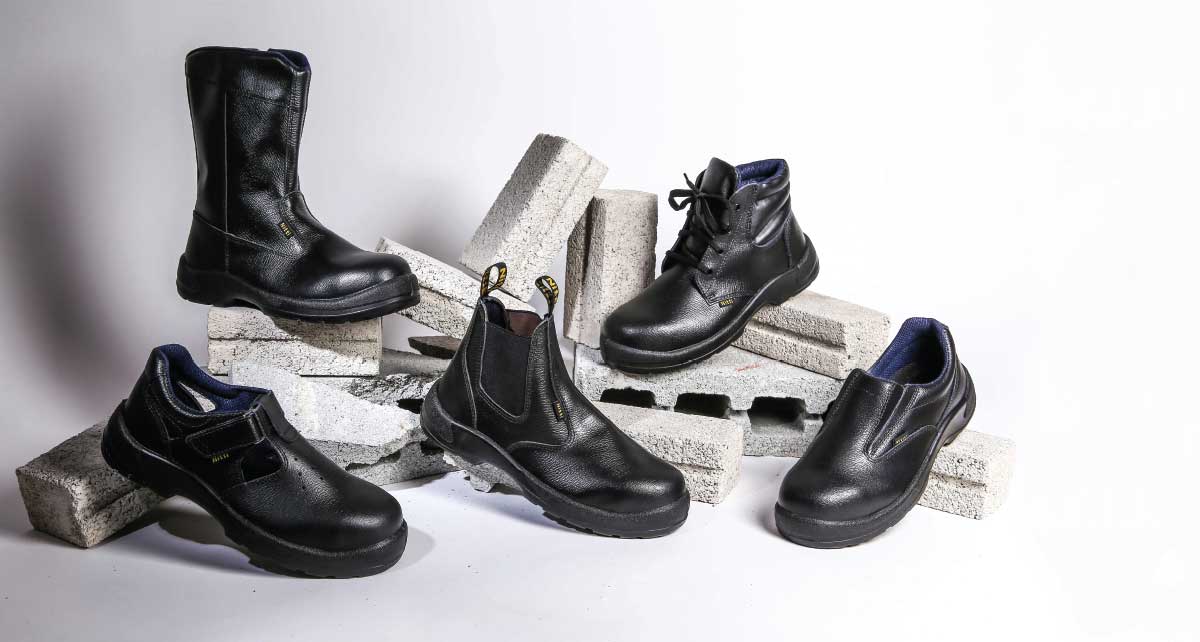
Protection Against Workplace Hazards
Different jobs come with different risks. Safety shoes are engineered to tackle these. This can mean protection against:
- Impact: Heavy objects falling on your feet.
- Puncture: Sharp objects on the ground, like nails or metal shards.
- Electrical Hazards: Preventing shocks if you're working near live electrical currents.
- Chemicals: Resistance to certain spills or corrosive substances.
It's important to know what hazards you face daily so you can pick shoes that specifically guard against them.

Comfort and Ergonomic Design
Protection is key, but if your safety shoes are uncomfortable, you're not going to perform at your best, and you might even develop foot problems. Modern safety shoes are designed with comfort in mind. This includes:
- Cushioning: Good insoles absorb shock and reduce fatigue.
- Support: Arch support helps maintain proper foot alignment.
- Breathability: Materials that allow air to circulate keep your feet cooler and drier, which is a big plus in Johor's warm weather.
Choosing shoes that fit well and feel good from the start means fewer distractions and a safer work experience overall. Don't underestimate the impact of a well-designed shoe on your day-to-day comfort and productivity.
Key Protective Elements for Safety Shoes in Johor
When you're looking at safety shoes here in Johor, it's not just about how they look or feel. The real magic is in what they're built to do – protect your feet from all sorts of workplace nasties. Let's break down the bits that really matter.
Steel Toe Cap Specifications
This is probably the most well-known feature. A steel toe cap is designed to shield your toes from falling objects or impacts. You'll often see them rated according to standards like ASTM or EN. These standards dictate the level of impact and compression resistance. For instance, a common rating means the shoe can withstand a significant impact, like a heavy object dropped from a certain height, without crushing your toes. It's the first line of defense against serious foot injuries.
Puncture-Resistant Soles
Think about what you might step on in a busy Johor worksite – nails, sharp metal shards, broken glass. A puncture-resistant sole is built with materials like Kevlar or a strong composite plate embedded in the sole. This layer stops sharp objects from piercing through the bottom of your shoe and into your foot. It's a really important feature, especially if you're working in construction, demolition, or any environment where sharp debris is common.
Slip-Resistant Outsoles
Slipping and falling can cause all sorts of injuries, from minor sprains to major accidents. Safety shoes designed for Johor's varied conditions often feature specially designed outsoles. These soles have unique tread patterns and use rubber compounds that grip surfaces better, even when wet or oily. The goal is to give you more stability and reduce the risk of unexpected slips, whether you're on a factory floor, a construction site, or navigating a wet warehouse.
The right safety shoe isn't just about meeting a minimum requirement; it's about proactively preventing injuries that could sideline you from work and life. Paying attention to these protective elements means you're investing in your well-being.
Here's a quick look at what to expect:
- Impact Protection: Steel or composite toe caps that meet specific impact resistance standards.
- Penetration Resistance: Soles designed to stop sharp objects from getting through.
- Traction: Outsoles engineered for superior grip on different surfaces.
- Ankle Support: Many models offer higher cuts for added ankle stability, reducing sprains.
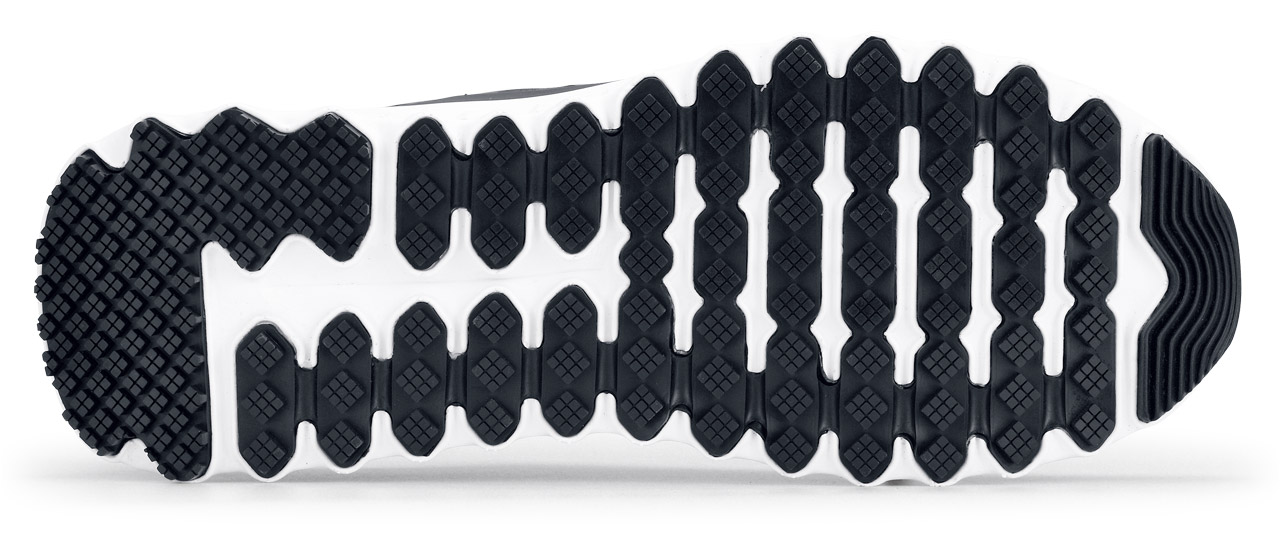
Navigating Trends in Safety Footwear in Johor
Safety shoes aren't just about protection anymore; they're evolving. The days of clunky, heavy boots are fading, especially here in Johor. Manufacturers are really listening to what workers need and want.
Lightweight and Breathable Materials
One of the biggest shifts is towards lighter materials. Think advanced composites instead of heavy steel for toe caps, and more flexible, breathable fabrics for the uppers. This makes a huge difference, especially in Johor's warm climate. You want your feet to stay cool and dry, not sweaty and uncomfortable. This focus on breathability means fewer distractions and more focus on the job at hand. It's a simple change that really impacts daily comfort.
Athletic-Inspired Designs
Another trend you'll see is safety shoes looking more like athletic sneakers. They're designed with cushioning, arch support, and flexible soles that mimic running shoes. This isn't just about looks; it's about providing better support and reducing fatigue over long shifts. Many workers find these styles help with foot pain and improve their overall posture. It’s about making safety gear feel less like a burden and more like a natural extension of your work attire. Companies like WaveFront Berhad are also looking at how design impacts worker performance.
Sustainable Footwear Options
There's a growing awareness about environmental impact, and safety footwear is no exception. More brands are exploring recycled materials and eco-friendly manufacturing processes. While still a developing area, you can find options that use recycled plastics or sustainably sourced natural materials. This is a good sign for the future, showing that safety and environmental responsibility can go hand-in-hand. It's a small step, but important for industries looking to reduce their footprint.
The push for lighter, more comfortable, and even sustainable safety shoes is a positive development for workers in Johor. It shows that the industry is moving beyond basic protection to consider the overall well-being and preferences of the people who wear these shoes every day. This means better productivity and happier employees.
Here's a quick look at what to expect:
- Lighter Toe Caps: Moving from steel to composite materials. This reduces weight significantly.
- Enhanced Cushioning: Insoles and midsoles designed for all-day comfort.
- Flexible Construction: Allowing for more natural foot movement.
- Eco-Conscious Choices: Use of recycled and sustainable materials.
Choosing the Right Safety Shoes in Johor for Your Industry
So, you're in Johor and need safety shoes. But not just any old pair, right? The kind you need really depends on what you do all day. It’s not a one-size-fits-all situation, and picking the wrong ones can be a real pain, or worse.
Construction and Manufacturing Needs
If you're on a construction site or working in a factory, your feet are probably taking a beating. You need shoes that can handle heavy stuff falling, sharp things poking up from the ground, and maybe even some electrical risks. Think steel toe caps that can take a serious hit, soles that won't let nails or sharp debris get through, and good grip so you don't slip on wet or oily surfaces. Durability is key here; these shoes need to last through tough conditions. You might also want something with good ankle support, especially if you're climbing ladders or working on uneven ground. Check out options for durable work boots that are built for these environments.
Oil, Gas, and Chemical Industry Requirements
Working in these fields means dealing with more than just physical hazards. You've got chemicals, slippery surfaces, and potentially explosive atmospheres to think about. Safety shoes here need to be resistant to chemicals that could eat away at the material. They also need to be static dissipative or conductive to prevent sparks in environments where flammable vapors might be present. Look for shoes made from materials that won't react with the substances you work with. Slip resistance is also a big deal, as spills are common. It’s all about preventing accidents that could have serious consequences.
Logistics and Warehouse Footwear
In warehouses and logistics, you're often on your feet all day, moving around constantly. Comfort is a huge factor, but so is protection. You might be lifting heavy boxes, operating machinery, or just walking miles on concrete floors. Shoes that are lightweight and offer good cushioning can make a massive difference to your energy levels and prevent foot fatigue. While you might not need the same level of heavy-duty protection as in construction, puncture-resistant soles and toe protection are still important, especially with forklifts and moving equipment around. Good breathability is also a plus, keeping your feet cool and dry during long shifts.
Picking the right safety shoe isn't just about following rules; it's about looking after yourself. Your feet are what get you around, and they deserve the best protection you can give them for the job you do.
Where to Find Quality Safety Shoes in Johor
So, you've figured out what kind of safety shoes you need for your job in Johor. Great! Now, where do you actually go to buy them? It's not like you can just pick up a pair of steel-toed boots at any old clothing store. You need places that specialize in workwear and safety gear.
Reputable Retailers and Suppliers
Johor has a good number of shops that focus on industrial and safety equipment. These are usually your best bet because they stock a variety of brands and types of safety shoes. Think about places that cater to construction workers, factory employees, or anyone working in a potentially hazardous environment. They often have knowledgeable staff who can help you find the right fit and features for your specific needs. It's worth checking out:
- Dedicated Workwear Stores: These shops are specifically set up to sell everything from overalls to hard hats, and of course, safety shoes. They usually have a decent selection.
- Industrial Supply Companies: These businesses often supply tools and equipment to various industries, and safety footwear is a big part of their inventory.
- Larger Hardware Stores: Some of the bigger hardware chains might carry a selection of safety shoes, especially those geared towards DIYers or small contractors.
It's always a good idea to call ahead or check their websites to see if they have the specific type of safety shoe you're looking for.
Online Purchasing Considerations
Buying safety shoes online is definitely an option, and it can sometimes offer more choices and competitive prices. However, there are a few things to keep in mind. Fit is super important with safety shoes, and you can't try them on when you buy online. Make sure you know your exact size and check the brand's sizing chart carefully. Also, look for retailers with good return policies, just in case they don't fit right or aren't what you expected. Read reviews from other buyers to get an idea of the quality and how the shoes perform.
Importance of Certifications and Standards
When you're looking at safety shoes, whether in a physical store or online, pay close attention to any certifications or standards they meet. These are usually marked on the shoe itself or in the product description. For example, you might see standards like ASTM (American Society for Testing and Materials) or EN (European Norm). These certifications tell you that the shoes have been tested and meet specific safety requirements for things like impact protection, puncture resistance, and slip resistance. Don't skip this step; it's your guarantee that the shoes will actually protect you.
Buying safety shoes isn't just about comfort; it's about protecting your feet from serious injury. Always look for the official markings that show the shoes meet safety regulations for your specific work environment. It's a small detail that makes a big difference in keeping you safe on the job.
Maintaining Your Safety Shoes in Johor for Longevity
So, you've got your trusty safety shoes, the ones that keep your feet safe on those Johor job sites. That's great! But, like anything you rely on, they need a little TLC to keep doing their job. Think of it like taking care of your car; a bit of maintenance goes a long way.
Cleaning and Care Best Practices
Regular cleaning is probably the most important thing you can do. It's not just about making them look good, though that's a bonus. Dirt and grime can actually break down the materials over time, especially if you're working around chemicals or in dusty environments. For most shoes, a good wipe-down with a damp cloth after use is a solid start. If they get really mucky, use a soft brush and some mild soap and water. Just make sure you rinse them well and let them air dry naturally – no blasting them with a heater or leaving them in direct sun, as that can warp the materials.
- Wipe down exterior after each use.
- Use a soft brush for stubborn dirt.
- Mild soap and water is usually fine, but check manufacturer instructions.
- Always air dry, away from direct heat.
Inspection for Wear and Tear
Before you lace them up each day, give them a quick once-over. Look for any signs of damage. Are the laces frayed? Is the stitching coming undone anywhere? How's the sole looking? Any deep cuts or excessive wear? Paying attention to these small details can prevent a minor issue from becoming a major safety hazard. Check the toe cap area too, as that often takes a beating. If you notice any significant damage, it might be time to think about a replacement.
Proper Storage Techniques
When you're not wearing them, store your safety shoes somewhere sensible. A cool, dry place is ideal. Avoid leaving them crammed in a locker or piled up with other gear, as this can cause them to lose their shape or get damaged. If you can, keep them in a breathable bag or on a shelf. This helps them maintain their structure and keeps them ready for your next shift.
Taking a few minutes each week to clean and inspect your safety shoes can significantly extend their lifespan and, more importantly, maintain their protective qualities. It's a small investment of time for a big return in safety and durability.
Wrapping It Up: Your Feet Will Thank You
So, we've gone over a lot about safety shoes in Johor. It’s not just about picking the first pair you see, right? Thinking about what you do for work and what kind of protection you really need is key. Whether it's steel toes for heavy stuff, slip resistance for slick floors, or just general comfort for long days, there's a shoe out there for you. Keep an eye on those new materials and designs coming out, too. By picking the right pair, you're not just following rules; you're looking after yourself. Your feet carry you everywhere, so give them the support and safety they deserve. Happy shoe hunting!
Need the right safety shoes in Johor?
Chat with us for expert advice or to order now.
Frequently Asked Questions
What makes safety shoes different from regular shoes?
Safety shoes are built tough to protect your feet from workplace dangers. They often have strong toe caps to stop crushing injuries and special soles that prevent sharp objects from poking through. Regular shoes just don't have these safety features.
Why is comfort important in safety shoes?
If you're on your feet all day, comfy shoes make a huge difference! Good safety shoes are designed to support your feet and ankles, reducing tiredness and preventing aches. This helps you stay focused and safe at work.
Are steel toe caps the only option for protection?
Nope! While steel is common, you can also find safety shoes with caps made of composite materials or aluminum. These can be lighter and sometimes don't set off metal detectors, which is handy in certain jobs.
What does 'slip-resistant' really mean for shoe soles?
A slip-resistant sole has a special tread pattern that grips surfaces better, especially wet or oily ones. Think of it like the tread on a car tire – it helps keep you from sliding and falling, which is super important in many work environments.
How often should I replace my safety shoes?
It's best to check your safety shoes regularly for any signs of damage, like worn-out soles, cracks, or holes. If they look beat up or aren't protecting you like they used to, it's time for a new pair. Safety first!
Can I buy safety shoes online in Johor?
Yes, you can! Many stores sell safety shoes online. Just make sure you're buying from a trusted seller and check their sizing guides carefully. It's also a good idea to look for shoes that meet safety standards, which are usually mentioned in the product details.
Finding the right personal protective equipment (PPE) supplier in Johor is more than just ticking a box. It's about making sure your team stays safe on the job, which is super important. You want gear that actually works and a supplier you can count on. This guide will help you figure out what you need, what to look for in certifications, and how to pick a good supplier in Johor. We'll cover everything from understanding hazards to building a solid, long-term relationship.
Key Takeaways
- Figure out exactly what dangers your workers face. This helps you pick the right kind of protection, like gloves for electrical work or sturdy boots for construction sites.
- Always check for certifications. Things like DOSH SIRIM approval in Malaysia, or standards like ASTM and IEC, show that the equipment meets safety rules.
- When looking for a PPE supplier in Johor, check their background. Make sure they have what you need, the quality is good, and the prices make sense, especially for bigger orders.
- Don't forget about the details. Think about things like how long it takes to get your order, what happens if something goes wrong, and if they can even make custom gear if you need it.
- Look for a supplier who cares about more than just making a sale. Consider if they offer eco-friendly options or have good customer service. Building a good relationship means better safety for everyone in the long run.
Understanding Your PPE Needs
Before you even start looking at suppliers, the most important step is figuring out exactly what kind of personal protective equipment, or PPE, your team actually needs. It sounds obvious, but you'd be surprised how many businesses skip this part. Getting this wrong means you might end up with gear that doesn't protect your workers properly, or worse, you might be spending money on stuff you don't even need. So, let's break down how to get this right.
Assessing Workplace Hazards
This is where you really need to put on your detective hat. What are the day-to-day risks your employees face? Think about everything from tripping hazards and falling objects to exposure to chemicals or extreme temperatures. A thorough hazard assessment is the bedrock of selecting the right PPE. It's not just about the obvious dangers; consider the duration of exposure and the specific environmental conditions. This will give you a clear picture of what hazards you need to protect against. For instance, if you have workers on a construction site, they'll need different protection than someone working in a cleanroom environment. Conducting a hazard assessment is the first, non-negotiable step.
Matching Protection to Specific Risks
Once you know the risks, you can match them with the right gear. It's like a puzzle. For example, if falling objects are a concern, you'll need safety boots with reinforced toe caps. If your team works with sharp materials, midsole protection is key. Slippery floors? Look for footwear with non-slip soles. It's all about direct correlation. Here’s a quick look at some common hazards and the type of protection that fits:
- Falling Objects: Reinforced toe caps.
- Sharp Objects: Midsole protection.
- Slippery Surfaces: Anti-slip soles.
- Extreme Temperatures: Heat-resistant soles.
- Chemical Exposure: Chemical-resistant materials.
Don't just grab the first thing you see. The right PPE is specific to the job. Mismatched gear can create a false sense of security, which is more dangerous than having no protection at all.
Industry-Specific Safety Requirements
Different industries have their own unique set of safety regulations and common risks. What's standard in manufacturing might be overkill or insufficient for healthcare. For example, the agriculture industry often requires protective toe caps, anti-static and anti-slip soles, and waterproof features. In contrast, the food and beverage sector might prioritize shock-absorbing heels and anti-slip soles for comfort and safety on wet floors. Always check if there are specific standards or common practices within your industry in Johor. This ensures your PPE choices align with both legal requirements and practical workplace needs.
|
Industry |
Key PPE Considerations |
|
Construction |
Steel toe caps, water-resistant stitching |
|
Healthcare |
Non-slip soles, shock-absorbing heels, comfortable fit |
|
Chemical |
Chemical resistance |
|
Oil & Gas |
Heat resistance, oil resistance, anti-slip, comfortable sole |
|
Logistics |
Protective toe caps, anti-slip, comfortable sole |
Key Certifications for Safety Equipment
When you're looking for safety gear, especially here in Johor, it's not just about how the stuff looks or how much it costs. You really need to pay attention to what makes it safe in the first place. That means looking for the right stamps of approval, the certifications that tell you this equipment has been tested and meets certain standards. It's like getting a report card for your safety gear – you want to see good grades.
Importance of DOSH SIRIM Approval
For many types of Personal Protective Equipment (PPE) used in Malaysia, you'll see references to DOSH and SIRIM. DOSH, which stands for the Department of Occupational Safety and Health, is the government body that oversees workplace safety. SIRIM, on the other hand, is a well-known standards and research institute. When PPE is approved by both, it means it has gone through rigorous testing to make sure it actually works as intended and protects the wearer.
- DOSH approval signifies that the product meets Malaysian safety regulations.
- SIRIM certification indicates that the product has been tested against specific standards for quality and performance.
Getting gear that has this dual approval gives you a solid level of confidence. It means the manufacturer has followed the rules and that the product is reliable for keeping your workers safe from common workplace hazards.
Understanding ASTM and IEC Standards
Beyond local approvals, many safety products also adhere to international standards. Two big ones you might encounter are ASTM and IEC.
- ASTM International develops and publishes voluntary consensus technical standards for a wide range of materials, products, systems, and services. For example, safety footwear often meets ASTM standards for impact and compression resistance.
- IEC (International Electrotechnical Commission) standards are particularly important for electrical safety equipment, like insulating gloves. These standards cover how electrical equipment should be designed, manufactured, and tested to prevent electrical hazards.
Looking for these international certifications shows that the product is designed to meet global safety benchmarks, which can be especially important if your business operates internationally or deals with equipment that follows these global norms.
Ensuring Product Reliability and Safety
Ultimately, all these certifications boil down to one thing: reliability. You need to know that the safety equipment you buy will perform when it's needed most. A supplier who can clearly show you the certifications for their products, explain what they mean, and provide documentation is a good sign.
Don't just take a supplier's word for it. Always ask to see the certification details. If a supplier is hesitant or can't provide proof, it's a red flag. Your workers' safety is too important to gamble on unverified equipment.
Here's a quick checklist when evaluating certifications:
- Verify the certification mark: Does it look legitimate?
- Check the product type: Does the certification apply to the specific item you're buying?
- Confirm the issuing body: Is it a recognized authority like DOSH, SIRIM, ASTM, or IEC?
- Ask for documentation: Can the supplier provide copies of the certificates or test reports if needed?
Evaluating Potential PPE Suppliers in Johor
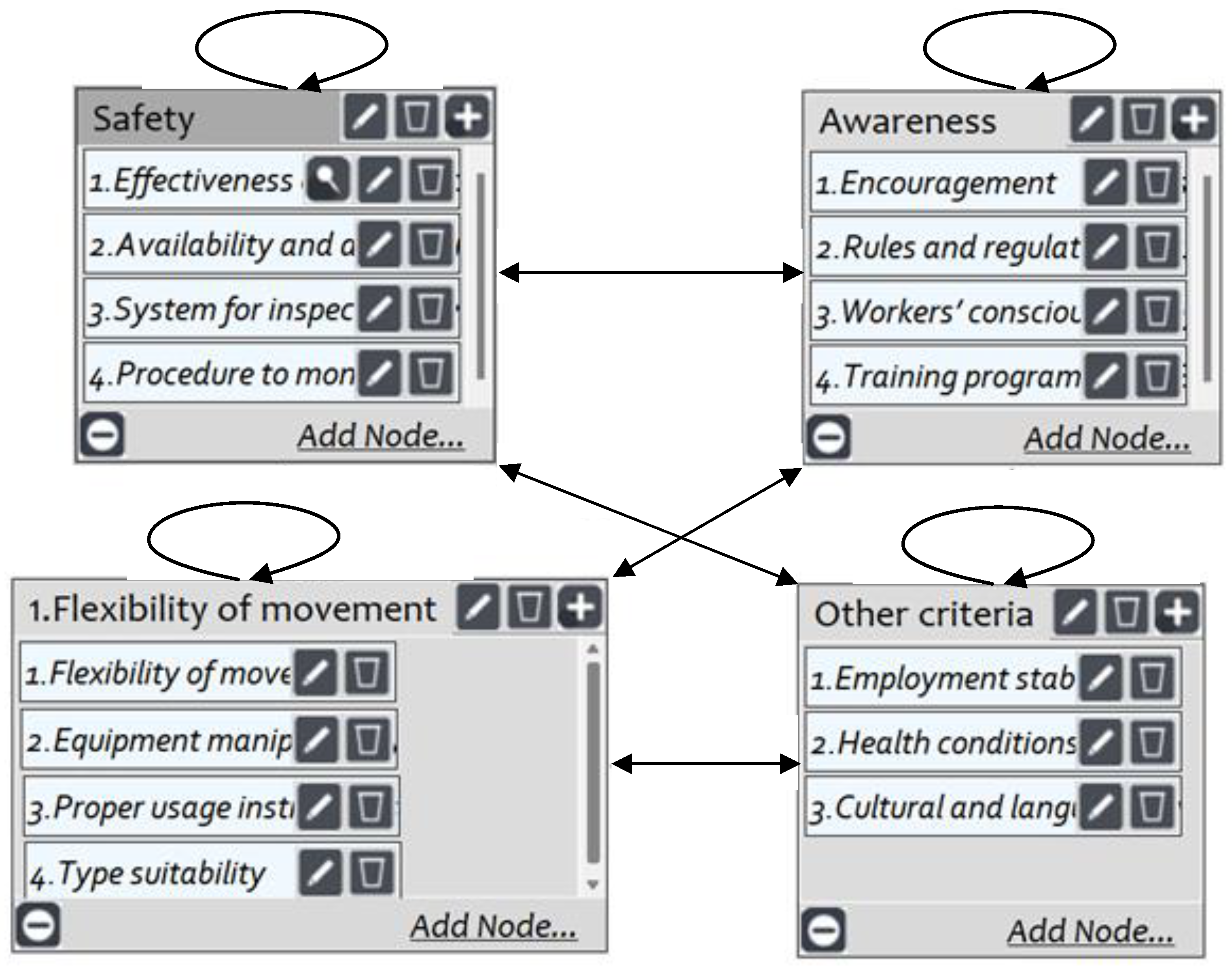
So, you've figured out what kind of safety gear your team actually needs. That's a big step! Now comes the part where you find someone to actually sell it to you. Picking the right supplier in Johor isn't just about finding the cheapest option; it's about making sure you get reliable stuff that keeps your people safe. Let's break down how to do that.
Verifying Supplier Credentials
First things first, you need to know if the supplier is legit. You don't want to end up with a company that disappears after you pay or sells knock-off gear. Look for suppliers who have been around for a while and have a good reputation. Ask them for proof of their business registration and any industry-specific licenses they might hold. It's also a good idea to see if they have any certifications themselves, showing they know what they're doing when it comes to safety equipment.
Assessing Product Range and Quality
Does the supplier actually have the full range of PPE you need? It’s way easier if you can get most of your safety gear from one place. Check out their product catalog. Are the items clearly described? Do they meet the safety standards we talked about earlier (like DOSH SIRIM, ASTM, or IEC)? Don't be afraid to ask for samples, especially for critical items like gloves or safety footwear. You want to feel the quality yourself. A good supplier will be happy to show you their products and explain why they're a good choice.
Comparing Pricing and Bulk Order Benefits
Okay, price matters, no doubt about it. But remember, the cheapest option might not be the best in the long run if the quality is poor. Get quotes from a few different suppliers. See if they offer discounts for buying in larger quantities. Sometimes, a slightly higher price per item can be worth it if you're getting better quality and a supplier who's easier to work with. It's a balancing act between cost and safety.
When comparing prices, always look beyond the sticker price. Consider the total cost of ownership, which includes the lifespan of the product, potential replacement costs, and the impact of product failure on your operations and employee safety.
Here's a quick way to compare:
- Supplier A: Higher unit price, excellent quality, good warranty.
- Supplier B: Mid-range price, decent quality, standard warranty.
- Supplier C: Lowest unit price, questionable quality, limited warranty.
Which one sounds like a better bet for keeping your team safe?
Focusing on Specialized PPE Components
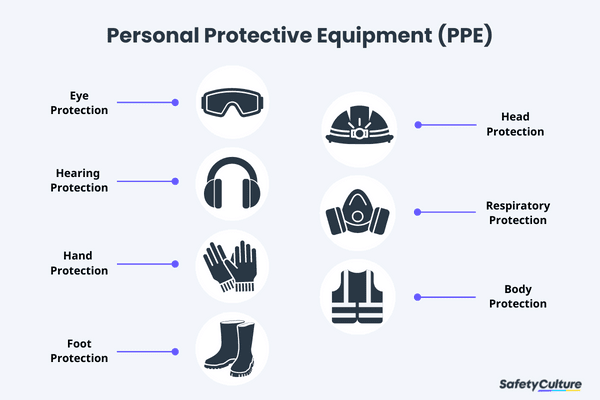
When you're kitting out your team, it's not just about the basics. Sometimes, the most critical protection comes from the specialized bits and pieces. Think about safety footwear and electrical insulating gloves – these aren't one-size-fits-all items. Getting these right means looking beyond the general catalog and really digging into what makes them effective for your specific jobs.
Selecting Durable Safety Footwear
Choosing the right safety shoes is more than just picking a sturdy-looking boot. You've got to match the shoe's features to the actual risks your workers face daily. For instance, if falling objects are a concern, you'll need boots with robust toe protection. If your team works around sharp debris, midsole protection becomes a big deal. Slippery floors? Look for soles designed for grip. It’s about preventing injuries before they happen.
Here’s a quick rundown of common hazards and the kind of protection to look for:
- Falling Objects: Toe cap protection is a must. Think heavy-duty boots.
- Sharp Objects: Midsole protection stops punctures. Again, heavy-duty is the way to go.
- Slippery Surfaces: Non-slip soles are key. Look for shoes specifically labeled as anti-slip.
- Wet Conditions: Waterproof and lightweight options, like PVC Wellingtons, can make a big difference.
- Chemical Exposure: You'll need shoes made with chemical-resistant materials.
Don't just assume any safety shoe will do. A quick chat with your supplier about the specific hazards in your workplace can help you pinpoint the footwear that offers the best defense.
Choosing Reliable Electrical Insulating Gloves
For anyone working with electricity, the right gloves are non-negotiable. These aren't your average work gloves; they're designed with high dielectric strength to prevent electrical currents from passing through. When you're looking for these, always check for certifications like ASTM D120 or IEC 60903. These standards mean the gloves have been tested and proven to offer a specific level of protection against electrical hazards. It’s also worth considering the voltage levels your team works with – gloves are rated for different voltage ranges, from low-voltage up to high-voltage applications.
Considering Customization Options
Sometimes, standard PPE just doesn't cut it. Maybe you have a unique work environment, or your team has specific needs that off-the-shelf products don't quite meet. This is where customization comes in. Some suppliers can modify existing PPE or even create bespoke items. This could mean adding extra padding to safety vests, adjusting the fit of gloves for better dexterity, or even incorporating specific branding. While it might cost a bit more upfront, custom solutions can lead to better comfort, improved safety, and higher worker acceptance of the gear. It’s about making sure the PPE works for your people, not against them.
Logistics and Supplier Support
When you're picking out safety gear, it's not just about the product itself. You've got to think about how you're going to get it, when you'll get it, and what happens if something goes wrong. This is where looking at a supplier's logistics and support really matters. It can make a big difference in keeping your operations running smoothly.
Confirming Lead Times and Delivery Schedules
Nobody likes waiting around for supplies, especially when they're needed to keep workers safe. It's important to get a clear picture of how long it will take for your order to arrive. Ask suppliers about their typical lead times for the items you need. Do they have stock readily available, or are things made to order? Also, find out about their delivery schedules. Do they deliver to your specific location in Johor regularly, or is it a special trip?
- Ask about stock levels for common items.
- Understand their delivery routes and frequency in Johor.
- Inquire about any potential delays due to holidays or local events.
Sometimes, suppliers might offer part deliveries if a full order isn't ready. While this can get you some of what you need sooner, make sure you understand how it affects the rest of your order and any potential extra shipping costs.
Understanding After-Sales Service
What happens after the delivery truck pulls away? Good suppliers don't just disappear. They should have a plan for what happens next. This includes how they handle returns if something isn't right, or if you've ordered the wrong thing by mistake. Check their policy on returns – do you need a special number? Are the goods expected to be in their original packaging? Also, think about warranties. If a piece of equipment breaks down, who fixes it, and how quickly?
It's wise to have a clear process for handling any issues that pop up with your PPE. Knowing who to call and what steps to take can save a lot of hassle down the line.
Evaluating Supplier Communication
Communication is key, right? You need to be able to reach your supplier easily when you have questions or need to make changes. How do they prefer to communicate? Is it email, phone, or a dedicated portal? A supplier that communicates clearly and promptly is usually a sign of a well-organized business. If you're trying to get a quote or track an order, how responsive are they? Do they keep you in the loop about any changes to your order or delivery? It's also good to know if they can provide training on how to use certain types of PPE, though this is often an extra cost unless specified otherwise.
Building a Sustainable Safety Partnership
Choosing the right personal protective equipment (PPE) supplier is more than just a transaction; it's about building a relationship that supports your company's long-term safety and ethical goals. As businesses become more aware of their environmental and social impact, so too does the demand for sustainable and ethically produced safety gear. This means looking beyond just price and availability to consider the broader implications of your purchasing decisions.
Exploring Eco-Friendly Material Options
It's becoming increasingly common for companies to seek out PPE made from more sustainable materials. This isn't just about looking good; it's about reducing your company's environmental footprint. Think about gloves made from recycled plastics or footwear incorporating plant-based components. While these options might sometimes come with a slightly higher initial cost, the long-term benefits for the planet and potentially for your brand image can be significant. It’s worth asking suppliers about their material sourcing and what eco-friendly alternatives they can provide. Some manufacturers are even starting to offer recycled content options in their products.
Partnering with Ethical Manufacturers
Beyond materials, the ethics behind how PPE is made are also gaining importance. This involves looking into labor practices, fair wages, and safe working conditions for the people manufacturing the equipment. A truly sustainable partnership means working with suppliers who are transparent about their supply chains and demonstrate a commitment to ethical production. This might involve checking for certifications or asking direct questions about their manufacturing processes. It’s about ensuring that the safety of your workers isn't achieved at the expense of others.
Long-Term Supplier Relationships
Building a lasting relationship with your PPE supplier can bring many advantages. When a supplier understands your business, your specific needs, and your commitment to sustainability, they can become a true partner. This can lead to better service, more tailored solutions, and even proactive suggestions for improving your safety program. A good supplier will be invested in your success, not just in making a sale. They'll be there to help you navigate changes in regulations, introduce you to new safety technologies, and ensure you always have the right gear for the job.
- Prioritize suppliers who demonstrate transparency in their operations.
- Look for suppliers with a clear commitment to environmental responsibility.
- Consider suppliers who offer training or support on PPE usage and maintenance.
Building a sustainable safety partnership requires a shift in perspective. It's about viewing your PPE supplier not just as a vendor, but as an ally in creating a safer, more responsible workplace for everyone involved.
Wrapping Up Your Search for a PPE Supplier
So, you've gone through the steps, checked the certifications, and thought about what your team really needs. Choosing the right personal protective equipment supplier in Johor isn't just about buying stuff; it's about making sure your people are safe on the job. Don't rush this. Take your time, compare your options, and ask plenty of questions. A good supplier will be happy to help you find exactly what you need, and that peace of mind is worth a lot. Ultimately, the best choice is a supplier who provides reliable gear and stands behind their products, helping you keep your workplace secure and your workers protected.
Frequently Asked Questions
What kind of safety gear do I really need for my workers in Johor?
Think about the dangers at your workplace. Are there things that could fall on feet? Do workers handle electricity? Are there sharp objects or slippery floors? Knowing these risks helps you pick the right protection, like sturdy boots with toe caps or special gloves for electrical work.
How do I know if the safety equipment is actually good and safe?
Look for official stamps of approval! In Malaysia, you'll want to see if the gear is approved by DOSH and SIRIM. These approvals mean the products have been tested and meet important safety rules, like those from ASTM or IEC, which are recognized worldwide.
What makes a supplier in Johor a good choice?
A good supplier will have all the right certifications for their products. They should also have a wide selection of quality gear, offer fair prices, especially if you're buying a lot, and be able to tell you all about their products.
Are there special things to consider for safety shoes and electrical gloves?
For safety shoes, make sure they protect against the specific dangers you identified, like falling objects or sharp stuff. For electrical gloves, it's super important they are made for the right voltage and are certified for electrical safety. Some suppliers can even make custom gear if needed.
What if I need the safety gear quickly, or if something goes wrong later?
Before you buy, ask the supplier how long it will take them to deliver the gear. Also, find out what kind of help they offer after you buy, like if you need to return something or have questions. Good communication is key!
Can I find safety gear that's also good for the environment?
Yes, some suppliers are starting to offer gear made from eco-friendly materials. Choosing these suppliers shows you care about the planet as well as your workers' safety. Building a long-term relationship with a responsible supplier is a win-win.
Workplace safety is a big deal, and finding a reliable PPE Supplier in Johor isn’t always easy. Haisar Safety Solutions has built a name for itself by focusing on what really matters making sure workers have the right gear to stay safe on the job. Whether you’re in construction, manufacturing, or any other industry where safety can’t be ignored, Haisar has a wide selection of protective equipment. People keep coming back because they know they’ll get good products and honest service. Let’s take a closer look at why Haisar stands out as a top choice for PPE in Johor.
Key Takeaways
- Haisar puts customers first and always listens to what they need.
- Their range covers everything from helmets to safety shoes, so it’s easy to find all your gear in one place.
- The team is quick to help with questions, making the buying process simple.
- Haisar focuses on products that last and actually protect workers, not just tick boxes.
- Many customers trust Haisar year after year because of their reliable service and quality.
Haisar Safety Solutions

Haisar Safety Solutions has become a steady force in the world of workplace protection throughout Johor. The company makes it easy for different industries to secure the right personal protective equipment, without hassle or worry. If you walk into their office or chat with a rep, you can expect down-to-earth advice no upselling, just honest help.
Here’s what stands out about how they work:
- Reliable, clear communication from quote to delivery
- They actually listen to feedback and adapt their service
- Stock ranges from standard-issue to industry-specific gear
You’d be surprised at how much effort goes into matching the right item to the right environment. Sometimes safety means more than just a helmet—it’s about the little details, like making sure gloves fit or respirators are comfortable for long shifts.
Working with Haisar doesn’t feel like dealing with a faceless supplier. There’s real care behind every shipment, and if something needs changing, they don’t make a fuss—they fix it. If you’re in Johor and looking for a straightforward PPE provider, Haisar is one of the first names you’ll hear.
Personal Protective Equipment
Nobody expects accidents at work, but the truth is, they happen sometimes when you least expect it. Personal protective equipment (PPE) plays a huge role in helping workers avoid injuries, both big and small. Whether it’s in construction, manufacturing, or even a simple warehouse, there’s no one-size-fits-all approach. Different jobs need different gear, and using the right equipment really makes all the difference.
Here are some key points about PPE you might find useful:
- PPE includes everything from helmets and gloves to masks and safety footwear.
- Each piece protects against specific types of hazards-think chemicals, sharp tools, noise, or falling objects.
- Regular training and the right fit are both just as important as the equipment itself.
|
Gear Type |
Hazard Protection |
|
Helmets |
Head injuries |
|
Safety Gloves |
Cuts, chemicals |
|
Masks |
Dust, fumes, particles |
|
Eyewear |
Flying debris, splashes |
|
Footwear |
Heavy or sharp objects |
Wearing PPE isn’t just about following rules—it’s about coming home at the end of the day with no new scratches, bruises, or worse. Staying safe is everybody’s business, and the right gear is the first step.
Safety Helmets
When it comes to protecting your head on the job, a helmet is not just required it's literally a lifesaver. Haisar supplies safety helmets that go beyond the basic hard cap; these helmets are engineered for both comfort and solid impact resistance. It's not just about avoiding bumps and bruises. One good helmet can be the single thing standing between you and a serious injury.
Here's what stands out about Haisar's safety helmets:
- Lightweight but super sturdy, so you barely notice they're there but still get all that protection.
- Adjustable straps and inner linings that actually fit different head sizes. No more annoying wobble!
- Made from tough materials that can handle heavy impacts and rough conditions day after day.
If you're looking for some numbers to compare:
|
Feature |
Industry Standard |
Haisar Helmets |
|
Weight (grams) |
350-400 |
320-370 |
|
Impact Resistance |
Meets minimum |
Exceeds |
|
Adjustable Fit Range |
Basic |
Wide |
A good helmet doesn't cut corners. Haisar.com's offerings show that safety gear can be reliable and comfortable, without making you sweat the small stuff.
It might sound simple, but wearing the right helmet every day stops accidents from turning tragic. Nobody expects trouble on a regular Thursday morning, but having solid head protection gives a little peace of mind no matter what pops up on site.
Protective Eyewear
Eye safety on the job isn't just about ticking a box—it can be the thing that keeps you from a nasty situation, like chemical splashes or flying debris. Protective eyewear acts as a real barrier between your eyes and tons of daily hazards in industrial spaces. When you're sorting through options, you might notice there are a few main types, each with its own purpose:
- Safety glasses: Lightweight and easy for everyday use
- Goggles: Fit tighter, keep out dust and liquids
- Face shields: Extra coverage for jobs with lots of flying material
A good fit matters, and so does the lens—clear for normal work, tinted for outdoor or welding tasks. More advanced versions, like the Kaliber 8001 ballistic eyewear, even come in different variants for unique situations (safety eyewear in clear and smoke).
|
Type |
Best For |
Unique Feature |
|
Safety Glasses |
General workshop tasks |
Lightweight, comfortable |
|
Safety Goggles |
Chemical handling |
Full seal around eyes |
|
Face Shields |
Heavy grinding, sparks |
Full face protection |
You only get one set of eyes, and taking the time to put on the right protection can make the difference between a minor scare and a serious trip to the doctor. When the risks pile up, it just isn't worth skipping over proper eyewear.
Respiratory Protection Masks
Breathing in clean air isn't something you think about until you don't have it, right? At Haisar, respiratory protection isn't just about handing over a mask it's about making sure every person has the right fit for their workspace. The right mask makes a world of difference, especially where there’s dust, fumes, or even occasional chemical whiffs floating around.
Here’s what you’ll find when picking out respiratory masks from Haisar:
- Disposable dust masks for quick jobs think sanding, minor demolition, or sweeping up a warehouse.
- Reusable half-face respirators that you can pair with filters to block specific hazards, like solvents or fine particulates.
- Full-face models for jobs where eye and lung protection need to work together, like paint spraying or working with some gnarly industrial chemicals.
Choosing the right mask depends on the job, but also on comfort. No one wants to wear something that rubs their nose raw or fogs up their glasses every time they breathe.
|
Mask Type |
Common Uses |
Key Feature |
|
Disposable Masks |
Dust, light particles |
Lightweight, easy |
|
Half-face Respirator |
Welding, woodwork |
Changeable filters |
|
Full-face Respirator |
Chemicals, spraying |
Eye & lung cover |
Workplace air isn't always safe, but covering your face with the right gear is a small step that pays off big every shift, every time.
If you're not sure what you need, Haisar helps figure it out. Better to spend a few minutes planning protection than risk the coughs and headaches later.
Hearing Protection
Hearing loss in industrial workplaces is more common than most people realize machines, engines, and tools all pump out noise at levels that can do lasting damage after just a short time. At Haisar, the approach to hearing protection is practical and straightforward. You get a choice of gear that’s built for environments where ear safety is more than just a checklist item.
Here’s what sets Haisar’s hearing protection options apart:
- Earplugs come in disposable and reusable types for different work settings.
- Earmuffs offer strong, reliable coverage for especially noisy areas.
- Specialist gear is available for workers with unique hearing needs or those operating in unpredictable sound conditions.
Choosing hearing protection isn’t just about popping in some earplugs and calling it a day. Workers need gear that fits well, feels comfortable for long shifts, and doesn’t interfere with their job. Employers have to make sure everyone knows how-and when-to use hearing protection, too.
|
Product Type |
Noise Reduction Rating (NRR) |
Recommended For |
|
Foam Earplugs |
32 dB |
Short, intense tasks |
|
Earmuffs |
25 dB |
Prolonged loud work |
|
Custom Plugs |
28–30 dB |
Specialized situations |
Quiet can seem ordinary, but on a loud job site, protecting your ears now means you’re still able to hear the important things years down the road.
Safety Gloves
When you work with hazardous materials, stubborn machinery, or even basic tools, the right gloves make all the difference. Safety gloves are more than just a piece of clothing-they're a first line of defense against a whole range of workplace injuries. At Haisar, these gloves aren't one-size-fits-all. Instead, they've got an entire range that covers different needs, whether it’s oil, chemicals, cuts, or simple abrasion.
Here's a quick look at the main types of safety gloves Haisar supplies:
- Cut-resistant gloves for sharper jobs
- Chemical-resistant gloves for handling solvents or acids
- Heat-resistant gloves for work involving welding or hot surfaces
- Disposable gloves for light duties and hygiene
- Electrical insulated gloves for work around live wires
|
Glove Type |
Typical Use |
Special Feature |
|
Cut-Resistant |
Metal & glass work |
Reinforced fibers |
|
Chemical-Resistant |
Laboratory, cleaning |
Nitrile/PVC coatings |
|
Heat-Resistant |
Welding, foundry |
Thermal insulation |
|
Disposable |
Food handling, healthcare |
Latex/nitrile material |
|
Electrical Insulated |
Electrical maintenance |
Rubber insulator |
If your hands have ever come out of a long shift sore, scratched, or worse, you know: not all gloves are created equal. Don’t leave safety up to chance-choose gloves that actually fit your work and protect you when it matters most.
Protective Clothing
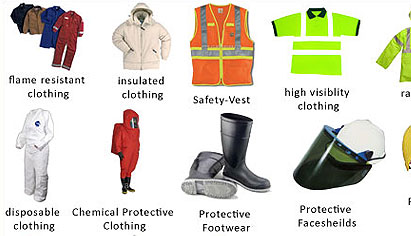
Protective clothing is the backbone when it comes to staying safe at work, especially in places filled with unpredictable hazards. Haisar provides a range of protective clothing that's built to meet different needs-whether you're in construction, chemical handling, food processing, or manufacturing. When the risks involve spills, flying sparks, or sharp objects, you want your gear to make a difference, not just check off a box on a safety form.
Let’s break down some of the most common types Haisar supplies:
- Coveralls that can shield you from both dust and splashes.
- Flame-resistant jackets and pants for workers dealing with high heat or electrical risks.
- Aprons and lab coats tailored for handling chemicals or messy processes.
- High-visibility vests meant for people working near traffic or heavy machinery.
Here’s a quick look at how the different garment types stack up:
|
Garment Type |
Main Purpose |
Typical Materials |
|
Coveralls |
Full-body protection |
Cotton , polyester |
|
FR Jackets & Pants |
Heat and flame safety |
Treated cotton, blends |
|
Lab Coats & Aprons |
Chemical/biological |
Polyester, rubber |
|
Hi-Vis Vests |
Visibility/awareness |
Reflective polyester |
Protective clothing is a simple way to cut down on the accidents that happen when you least expect it. When the right clothing is chosen for the right task, folks go home safe-and that’s what matters.
Safety Footwear
When people think about workplace hazards, they sometimes forget about their feet. But, really, your feet are pretty vulnerable on the job. Haisar pays special attention to safety footwear because injuries from slips, dropped tools, or even just unexpected sharp objects are way more common than folks realize. Wearing the right shoes at work isn’t just a good idea, it’s often required.
There's a surprising amount of variety here too-it's not just about heavy boots anymore. Haisar supplies:
- Steel-toe boots for impact protection
- Slip-resistant shoes for damp or oily areas
- Insulated boots for electrical work
- Lightweight options for jobs needing more movement
Here’s a quick glimpse at how these options compare:
|
Type |
Main Use |
Special Feature |
|
Steel-toe boots |
Construction, factory |
Protects against impacts |
|
Slip-resistant shoes |
Kitchens, labs |
Extra grip on wet floors |
|
Electrical hazard boots |
Electrical work |
Insulated for safety |
|
Lightweight work shoes |
Logistics, warehouses |
Flexible and comfortable |
When you’re walking around tools, machines, or even just moving boxes, you'll want shoes that can take a beating and still keep you comfortable. Skipping on proper footwear is just asking for trouble, and nobody wants to hobble through the rest of the day after dropping something on their toes.
If you ask around at any jobsite in Johor, there’s a good chance someone’s wearing safety shoes from Haisar. They just get how important the right footwear is and they know everyone’s job is a little different.
Fall Protection Equipment
Falls are something nobody wants at work, but let’s face it-they happen. That’s where fall protection equipment really comes in. If you’re working up on scaffolding, climbing ladders, or just trying to get a job done on a rooftop, having proper gear can mean the difference between a normal day and a bad injury.
Here are some basic types of fall protection gear you’ll come across most often:
- Full body harnesses — these spread forces across your body in case you take a tumble
- Shock-absorbing lanyards — cut down on the jolt if you fall
- Self-retracting lifelines — automatically adjust and lock to stop a fall
- Anchor points — strong, fixed spots to connect your safety lines
It might seem like a lot, but take a minute to look at the bigger picture. Wearing the right harness could save you from a hospital trip—or worse.
Sometimes, the simple act of clipping in that extra strap is what gets everyone home safe at the end of a shift. Nobody ever regrets that.
If you want to explore a broad range of fall protection gear along with other workplace safety options, Haisar carries tons of reliable products for tough jobs, as seen in their variety of fall protection products.
Conclusion
So, that's pretty much the story with Haisar in Johor. They really do put a lot of effort into making sure people get the right safety gear for their jobs. You can tell from the way customers talk about them—they seem happy with the products and the support. Haisar keeps things simple, offers a wide range of PPE, and actually listens when you have questions or need help. If you're looking for a supplier who takes workplace safety seriously but doesn't make things complicated, Haisar is worth checking out. At the end of the day, it's about feeling safe at work, and they seem to get that.
Frequently Asked Questions
What makes Haisar a top PPE supplier in Johor?
Haisar stands out because they offer a wide range of safe, reliable, and high-quality protective gear. They focus on customer needs, always looking for better ways to keep people safe at work.
What types of personal protective equipment does Haisar provide?
Haisar supplies everything from helmets and eye protection to gloves, masks, safety shoes, and clothing. They make sure you have all the safety gear you need for any job.
How does Haisar ensure the quality of their safety products?
Haisar checks their products carefully and only offers items that meet strict safety standards. They work with trusted brands and always look for ways to improve their products.
Can Haisar help with choosing the right PPE for my workplace?
Yes! Haisar's team is ready to help you pick the best safety equipment for your needs. They listen to your concerns and recommend the right gear for your job.
Does Haisar offer solutions for different industries?
Yes, Haisar provides safety equipment for many industries, like construction, factories, and more. They can customize their solutions to fit your specific work environment.
How can I contact Haisar for more information or to place an order?
You can reach out to Haisar by phone, email, or through their website. Their team is friendly and quick to answer any questions or help you with your order.
Introduction
Every step matters when it comes to workplace safety. In Johor’s fast-growing industries — from construction to manufacturing — workers spend long hours on their feet, often in hazardous environments. That’s why safety shoes are one of the most important pieces of personal protective equipment (PPE). Choosing the right safety shoes can prevent injuries, improve comfort, and ensure compliance with safety regulations.
1. Why Safety Shoes Are Essential
Safety shoes protect against:
- Impact and Compression: From falling tools, machinery, or heavy loads.
- Punctures: From nails, sharp metals, or glass.
- Slips and Trips: Anti-slip soles reduce accidents on oily or wet surfaces.
- Electrical Hazards: Some shoes are designed with insulation for electricians.
- Fatigue: Ergonomic designs support long hours of standing and walking.
2. Features to Look for in Safety Shoes
When buying safety shoes in Johor, businesses should consider:
- Toe Protection: Steel toe vs composite toe.
- Sole Type: Anti-slip, heat resistant, or puncture resistant.
- Material: Leather, synthetic, or lightweight composites.
- Comfort: Breathability, cushioning, and ergonomic fit.
- Certifications: SIRIM, CE, or ASTM standards for safety footwear.
3. Industries in Johor That Rely on Safety Shoes
- Construction: To protect against falling debris and uneven surfaces.
- Manufacturing: For handling heavy machinery and sharp objects.
- Oil & Gas: Anti-slip and heat-resistant shoes are crucial.
- Warehousing & Logistics: Long walking hours demand comfort and durability.
4. Why Buy Safety Shoes from a Local Johor Supplier
Choosing a supplier based in Johor gives you:
- Quick access to stock and replacements.
- The ability to try sizes and models before bulk purchase.
- Local expertise in matching footwear to industry needs.
- Shorter delivery times and cost savings.
5. Haisar Supply & Services – Your Safety Shoes Partner
At Haisar Supply & Services, Kulai, we provide a wide range of certified safety shoes designed for different industries. Whether your team needs heavy-duty steel toe boots, lightweight shoes for logistics, or heat-resistant footwear for oil & gas, we’ve got you covered.
Our focus is on:
- Durability and comfort
- Compliance with Malaysian and international safety standards.
- Reliable local support and fast delivery across Johor.
Conclusion
The right safety shoes are more than just footwear — they’re essential protection for workers and peace of mind for employers. Companies in Johor should invest in quality safety shoes that meet both comfort and safety requirements.
👉 Looking for certified safety shoes in Johor? Contact Haisar Supply & Services today to explore our full range and get expert recommendations.
Introduction
In every workplace, safety should always come first. Whether in construction, oil & gas, logistics, or manufacturing, the use of personal protective equipment (PPE) is essential to protect workers from risks and ensure compliance with Malaysian safety regulations. For companies in Johor, finding a reliable PPE supplier is more than just a purchase decision — it’s an investment in employee well-being and business continuity.
1. Why PPE Is Critical for Johor Businesses
Johor’s industrial sector has grown rapidly, attracting local and international companies. This growth also means stricter enforcement of workplace safety standards under the Occupational Safety and Health Act 1994 (OSHA 1994). Employers must ensure workers are properly equipped with certified PPE.
The right PPE helps:
- Prevent accidents and injuries.
- Reduce lost workdays.
- Improve employee confidence and productivity.
- Meet legal and insurance requirements.
2. Qualities of a Reliable PPE Supplier in Johor
Not all suppliers are the same. When choosing a PPE supplier, businesses in Johor should look for:
- Wide Product Range: Helmets, gloves, safety shoes, fire-retardant clothing, harnesses, and more
- Certified Products: SIRIM or CE-certified PPE that meets international standards.
- Local Availability: A supplier based in Johor can provide faster delivery and service.
- Customer Support: Training, after-sales support, and expert advice.
3. Why Local Suppliers Make a Difference
Working with a local PPE supplier in Johor means:
- Quicker response to urgent needs.
- Better understanding of local industry requirements.
- Stronger long-term partnerships.
- Reduced logistics costs compared to sourcing from outside Johor.
4. Haisar Supply & Services – Your Trusted PPE Partner
At Haisar Supply & Services in Kulai, Johor, we specialize in providing high-quality PPE tailored for local industries. Our product range includes:
- Safety helmets and face shields.
- Industrial gloves for various applications.
- Fire-resistant workwear.
- Safety harnesses and fall protection gear.
- Certified safety shoes.
We pride ourselves on offering reliable service, fast delivery across Johor, and products that comply with Malaysian and international safety standards.
Conclusion
When it comes to workplace safety, choosing the right PPE supplier is non-negotiable. Companies in Johor need a trusted partner that delivers quality, reliability, and compliance. At Haisar Supply & Services, we are committed to helping businesses protect their workforce and build a culture of safety.
👉 Looking for a dependable PPE supplier in Johor? Contact Haisar Supply & Services today to learn more about our wide range of certified safety products.
Introduction
Ensuring workplace safety is not just about compliance with regulations it’s about protecting the lives of workers and creating a safer, more productive environment. In Malaysia, the Department of Occupational Safety and Health (DOSH) sets strict guidelines on Personal Protective Equipment (PPE). But beyond compliance, companies should understand what PPE is truly essential for everyday operations.
Here are the top 10 PPE items every Malaysian workplace should have whether you are in construction, manufacturing, oil & gas, or general industry.
1. Safety Helmets / Hard Hats
Head injuries are among the most serious workplace accidents. A certified safety helmet protects workers from falling objects, electrical hazards, and impacts. Look for helmets that meet MSA, ANSI, or EN standards, and ensure they come with secure chin straps for construction and industrial use.
2. Safety Glasses & Goggles
Eye protection is critical in industries involving dust, debris, sparks, or chemicals. Safety glasses are ideal for general use, while goggles provide a tighter seal for environments with high dust or chemical splash risks.
3. Hearing Protection (Ear Plugs & Ear Muffs)
In factories, workshops, or construction sites, prolonged exposure to loud noise can cause permanent hearing loss. Ear plugs are lightweight and disposable, while ear muffs provide a higher level of noise reduction. Both should comply with SNR (Single Number Rating) standards.
4. Respiratory Protection (Masks & Respirators)
From dust to hazardous fumes, airborne particles can harm workers’ health. Disposable N95 masks are useful for dust, while half-mask or full-mask respirators with filters are essential for chemical or heavy industrial use.
5. Safety Gloves
Hands are the most commonly injured body part at work. Depending on the job, workers may need:
- Cut-resistant gloves (for construction & glass handling)
- Nitrile gloves (for chemical handling)
- Heat-resistant gloves (for welding & hot surfaces)
6. Safety Footwear / Boots
Proper safety boots protect workers from slips, punctures, falling objects, and even electrical hazards. Look for footwear with steel toe caps, slip-resistant soles, and dielectric protection for electrical work.
7. Hi-Vis Clothing & Workwear
High-visibility (hi-vis) jackets, vests, and shirts make workers easily noticeable, reducing accidents in traffic, warehouses, or construction sites. For maximum protection, choose clothing with reflective tape that meets EN ISO 20471 standards.
8. Fall Protection Equipment (Safety Harnesses & Lanyards)
For those working at heights such as construction workers, tower climbers, or maintenance crews full body harnesses, shock-absorbing lanyards, and lifelines are essential. These prevent falls and save lives.
9. Face Shields & Welding Protection
Where sparks, flying debris, or chemical splashes are present, a face shield provides an extra layer of protection. Welders also require welding helmets with auto-darkening lenses to protect eyes from arc flash.
10. Emergency Safety Equipment (Eyewash & First Aid)
Accidents happen even with the best PPE. That’s why eyewash stations, first aid kits, and fire extinguishers are critical on-site. Quick response equipment can minimize the severity of injuries and save lives.
Why PPE Matters for Malaysian Companies
Investing in proper PPE isn’t just about ticking a compliance box. It:
- Protects employees from life-threatening injuries
- Reduces downtime caused by accidents
- Builds trust with clients and employees
- Helps organizations stay compliant with DOSH Malaysia and international standards
At Haisar Supply & Services, we are committed to delivering high-quality PPE and safety solutions to companies across Malaysia. From helmets and gloves to full fall protection systems, our products are designed to keep your workforce safe and your business compliant.
Introduction
Welcome to the official blog of Haisar Supply & Services! We are thrilled to launch this platform as a new way to connect with our valued customers and partners. For years, Haisar has been a leading provider of safety equipment and solutions in Johor, and now, we're bringing our expertise to you in a more personal and informative way.
Our Commitment to Your Safety
At Haisar Supply & Services, we believe that safety isn't just a product—it's a partnership. Our mission is to be the top choice for customized safety solutions, helping you protect your team and your assets. From head protection to foot protection, and everything in between, our extensive range of high-quality equipment is designed to meet the rigorous demands of various industries, including Oil & Gas, Construction, Marine, and more.
More Than Just a Supplier
We're not just a supplier; we are your dedicated safety partners. Our team is committed to providing expert advice, efficient service, and cost-effective solutions tailored to your unique needs. We serve as the vital link between our clients and trusted suppliers, ensuring you get reliable, sustainable, and professional-grade safety gear every time.
What to Expect from Our Blog
This blog will be your go-to resource for all things safety. We will cover a wide range of topics, including:
- In-depth guides on choosing the right PPE for your industry.
- The latest safety regulations and best practices.
- Tips for creating a safer workplace environment.
- Showcasing our newest products and innovative safety solutions.
We are excited to embark on this journey with you. Our goal is to empower you with the knowledge and tools you need to ensure a safe and secure working environment. Thank you for trusting Haisar Supply & Services. We look forward to building a safer future together, one post at a time.
- Ready to discuss your safety needs? Visit our Contact Page and get in touch with our expert team today!
- Explore our products now: Check out our full range of safety solutions on our Products Page.

